How to Live and Work Abroad in Australia
Would you fly halfway around the world just to work abroad in Australia?
I did, and thousands of others do too!
Why? People flock to the Land Down Under in hopes of scoring a job and making a pretty penny.
Australia is known for savage wildlife, kangaroos, sexy accents, barbies (BBQs, not dolls), and for having a massive sacred red rock in the middle of the Outback.
While these may all be true about Australia, there’s so much more the country has to offer. And one of those things is a fab work-life balance that puts most of the world to complete shame.
While I thought of many possible ways to move to Australia (i.e marry an Aussie…mmm, that accent), I decided to start off with the easiest, cheapest, and most legal way—getting a job in Australia!
Australia is an incredible country to live AND work in, and I 100% recommend coming here to work and save up your cash!
And when I mean save, I mean REALLY SAVE!
Interested in what it’s like to work here? Here’s how to work abroad in Australia, what it’s like, and why it’s awesome!
Table of Contents
- Live and Work Abroad in Australia—Everything You Need to Know!
- Tips for Landing a Job in Australia
- Popular Jobs in Australia for Foreigners
- Where to Look for a Job in Australia
- How to Apply for Jobs in Australia
- The Perks of Living and Working Abroad in Australia
- Tips on Moving to Australia
- How To Save Money in Australia
- Final Thoughts on How to Work Abroad in Australia
- More About Working in Australia
Live and Work Abroad in Australia—Everything You Need to Know!
The best and easiest way to start a life in the Land Down Under is to get a job. This will help you stay on your feet (Australia is not cheap!), and even save up enough money to further your travels or settle down here comfortably.
This may seem like a monumental undertaking but fear not. I’ve made a step-by-step guide for you to keep things as easy as they can be. I also have a ton of resources and tips sprinkled throughout!
Okay, first things first.
1. Choose the Right Visa to Work Abroad in Australia
As a foreigner, you will NEED a visa to work abroad in Australia—it’s a non-negotiable. Luckily, there are a few ways to obtain said visa. The first thing you should figure out is what kind of job suits you and if foreigners are allowed to do that job within the country.
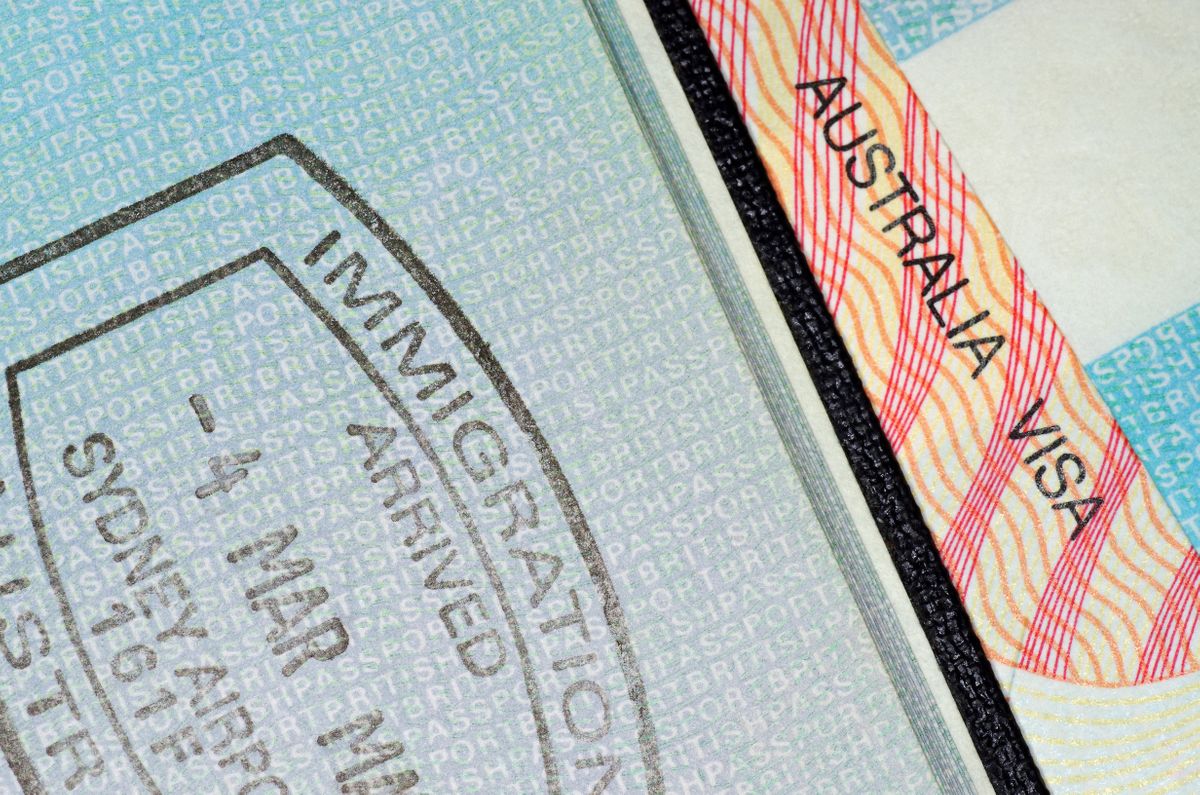
Young workers without a lot of experience often opt for a working holiday visa, while those who are already set in their careers can seek out a skilled workers visa.
If you’re more interested in immersing yourself in the Aussie culture and don’t care much about making the big bucks, you could also look into a study abroad opportunity.
Working Holiday Visa (This is How I Lived and Worked Abroad in Australia)
If you’re between 18 and 30 years old (18 and 35 years old for lucky Canadian, Irish, and French passport holders), you can apply for a subclass 462 working holiday visa if you’re from the US or a few other countries. Most of the EU and a few other locations would obtain a subclass 417 visa.
These are the requirements to qualify for the visa to work abroad in Australia:
- You’ll need to meet the age requirement
- Have $ 5,000 AUD in the bank
- A passport, duh
- The ability to speak English and a high school diploma
- Money for the application fee
- Must not be accompanied by any dependent children
- Health insurance during your stay
- Have no criminal convictions or serious medical concerns
That is legit all you need for the working holiday visa to begin working in Australia if you’re from the USA/40 or so other countries. Easy peasy!
Once you get your visa, you’re free to head off to Australia and search for a job! You can now live and work on your visa for 1-2 full years (depending on where you’re from), giving you plenty of time to wander or work your ass off to make it rain (with travel money) around the whole continent and beyond.
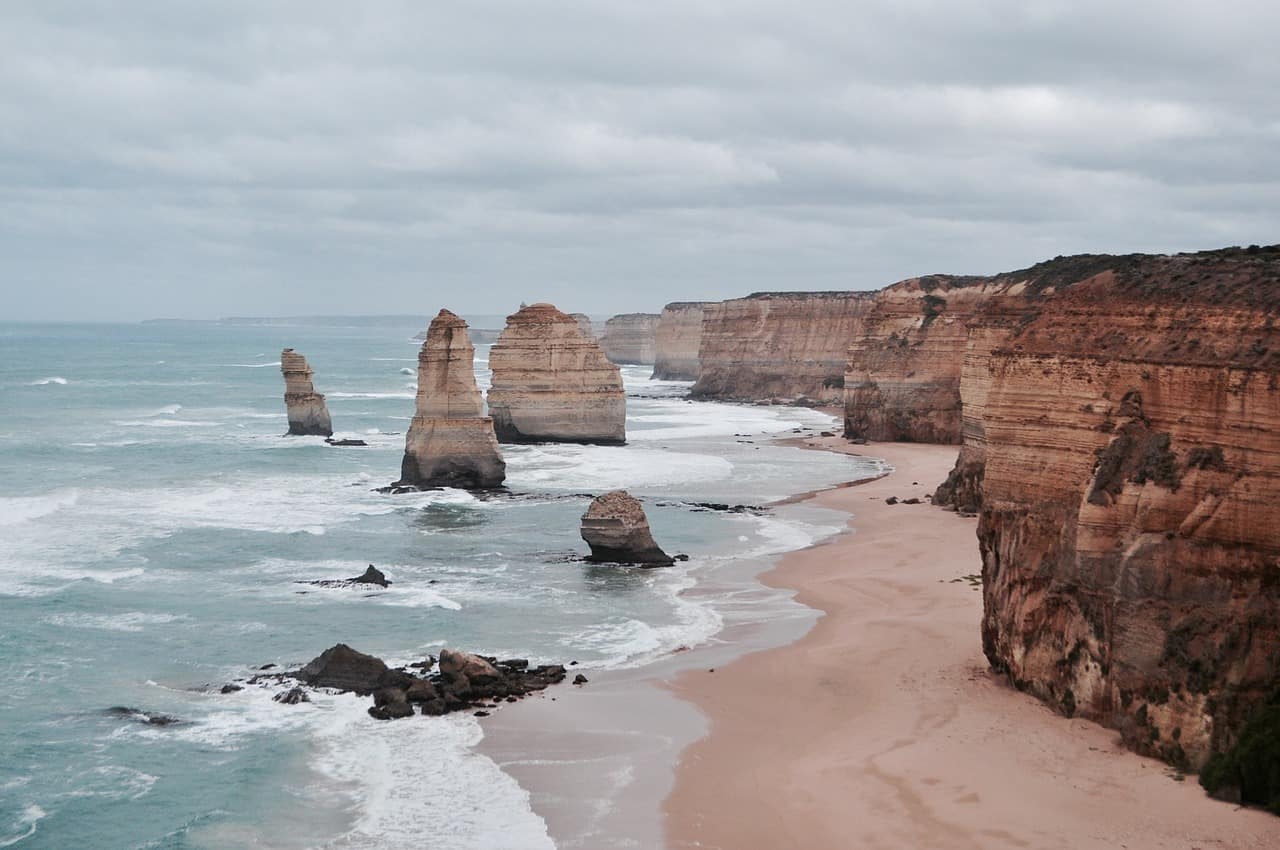
Nothing good lasts forever, but it is possible to extend your time working abroad in Australia by a little more. If you can prove your worth to an employer, they can sponsor you for a second-year working holiday visa.
For this visa, you’ll usually have to be doing some type of farm work, so keep that in mind if you’re coming up on the end of your WHV.
There is also a chance to get sponsored to stay longer, but in short, it depends on your employer.
RELATED: The Ultimate Guide to The Australian Working Holiday Visa
Unlock FREE Flights and Hotels!
Credit cards aren’t just for spending—they’re your ticket to epic travel rewards!
By using the right card for your everyday purchases, you could earn points for free flights, hotel stays, and more. No tricks, just smarter travel. Ready to see how?
Skilled Worker Visa
If you’re looking for a more permanent way to live and work abroad in Australia, you can see if you qualify for a skilled work visa. To qualify for this visa, you’ll need to work in an industry that is currently facing shortages in Australia.

This list is updated from time to time, but typical jobs that can get you this type of visa include IT work, engineers, teachers, and a whole lot more. You can check the current skilled occupations list here.
Study Abroad Visa
Students who are studying full-time can apply to continue their studies in Australia with a student visa. You’ll only be allowed to work a limited amount of hours, but if your main goal is studying, you probably won’t have a lot of extra time for working anyway.

This may not be the ideal visa if you’re hoping to make a fortune, but it’s a great way to network and get a foot in the door if you want to work abroad in Australia in the future.
Side Note: Since the Working holiday visa is the most common visa and the one I did, I will be mostly speaking from that perspective, but most everything here can help you with the other visas too!
2. Understand the Work Vibe in Australia
If you’re from The States, the pay, the work-life balance, and the lifestyle, in general, will feel rather strange to you.
While the federal minimum wage in the US is $7.25/hour (although higher in many states and cities), you’ll see $23.23 AUD/hour (about $15 USD) in Australia, and you can expect more.
I worked in hospitality and retail and made upwards of $25 AUD (nearly $20 USD with the currency exchange rate at the time) per hour for nice, laid-back gigs. (And this was in 2016)
Also, unlike in America, the work-life balance is on point in Australia. You are expected to relax, spend time with friends and family, and enjoy leisure time, just for the sake of (gasp!) leisure.
At both of my jobs, I accrued vacation days. Let that sink in, my American friends. VACATION DAYS.
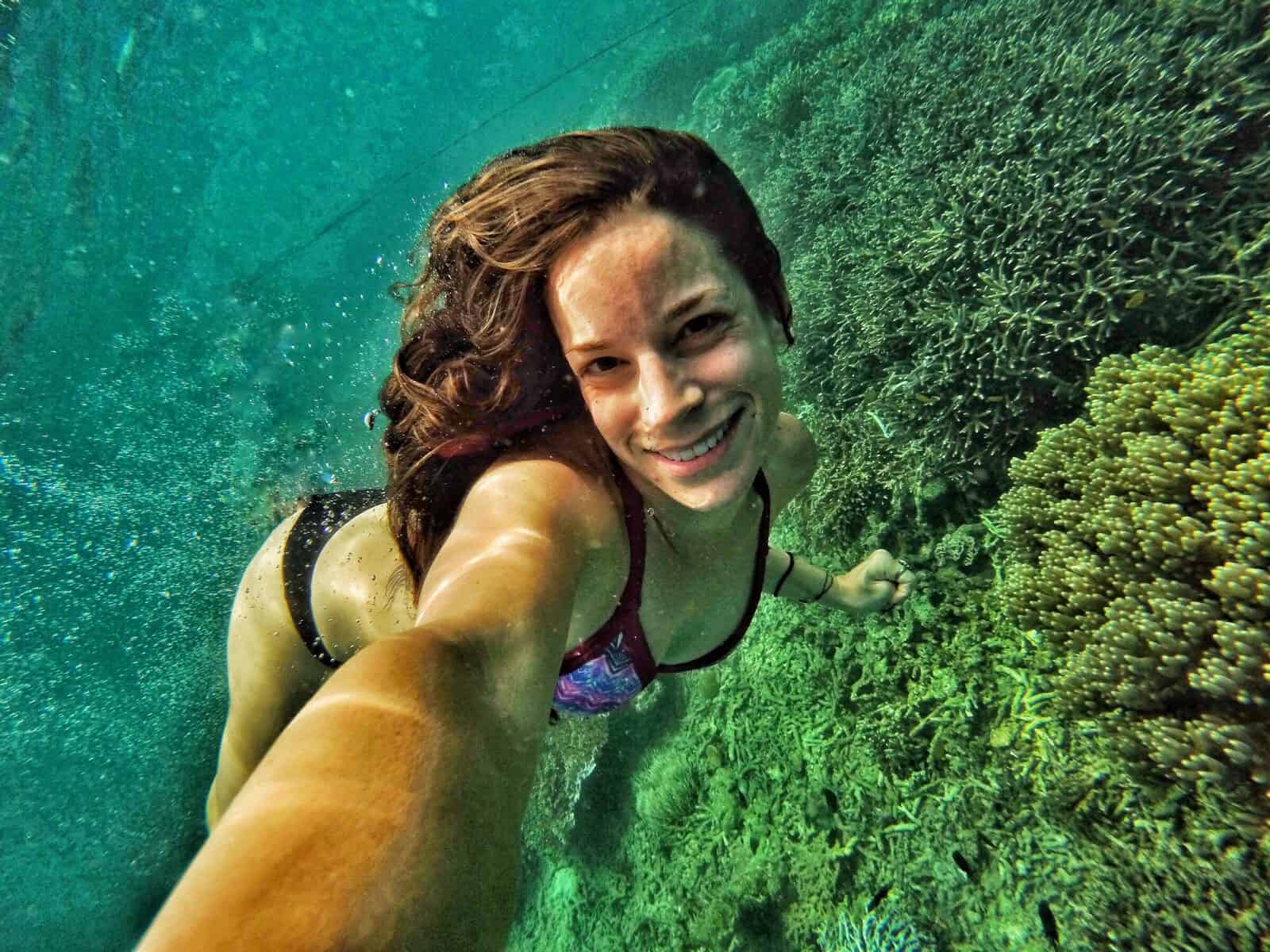
Those days that we crawl, beg, and die for in the USA, and when we actually earn them, get scoffed at for using them. Yeah, I accrued those on my measly working holiday visa while I worked abroad in Australia.
I got a whole two weeks PAID vacation after working part-time at the easiest jobs in the world.
If you’re curious, I spent one of those weeks snorkeling and climbing volcanoes backpacking Indonesia. For the other week, I used it as a paid week after my visa ran out. So, I got paid for a week AFTER I left the job.
The lifestyle is also fabulous. Seriously.—fabulous. Garrett and I lived in Melbourne and Darwin, and we got a great sense of the lifestyles in two very different locations in Australia.
RELATED: How I Saved $20,000 Within 10 Months of Living and Working in Australia
3. Decide When to Live and Work Abroad in Australia
I often get asked when to look for work in Australia, but the first question you need to ask yourself is, what type of job are you aiming for?
If you want to work at a ski resort, would it make sense to show up at the peak of summer? Probably not. (Don’t forget about opposite hemispheres as well!)
If you wish to work in retail and want to get those holiday hours in, do you think it would be smart to stroll in on the 5th of December? Nope, jobs are full, buddy! See ya next year.
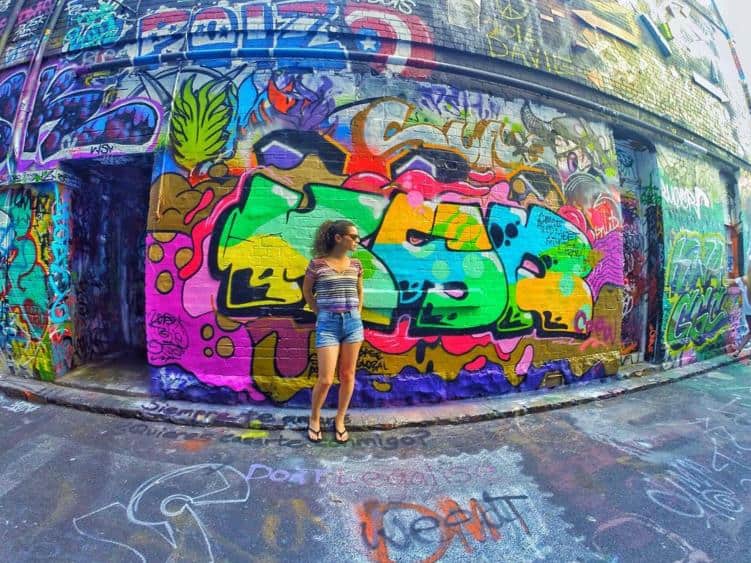
Side note: I did this! Trust my experience; when I arrived in Melbourne on December 5th, it took me until January to find a job. A whole month was wasted trying to find a job once I landed in Australia. Don’t do this! I make mistakes, so you don’t have to, you’re welcome. 🙂
It’s similar to life in the US; what would you do back home? You’d go in BEFORE the season starts.
RELATED: An American Working in Australia and Living for Under $750 USD ($1000AUD) / Month
4. Decide Where to Work Abroad in Australia
The where is just as important as the when. And it’s going to depend on one important factor: YOU!
Are you a big city lover? Definitely don’t go to Darwin – small-town vibe, super chill, and super quiet. But if big cities are your thing, you’ll have plenty of options. However, there will be more competition for jobs.
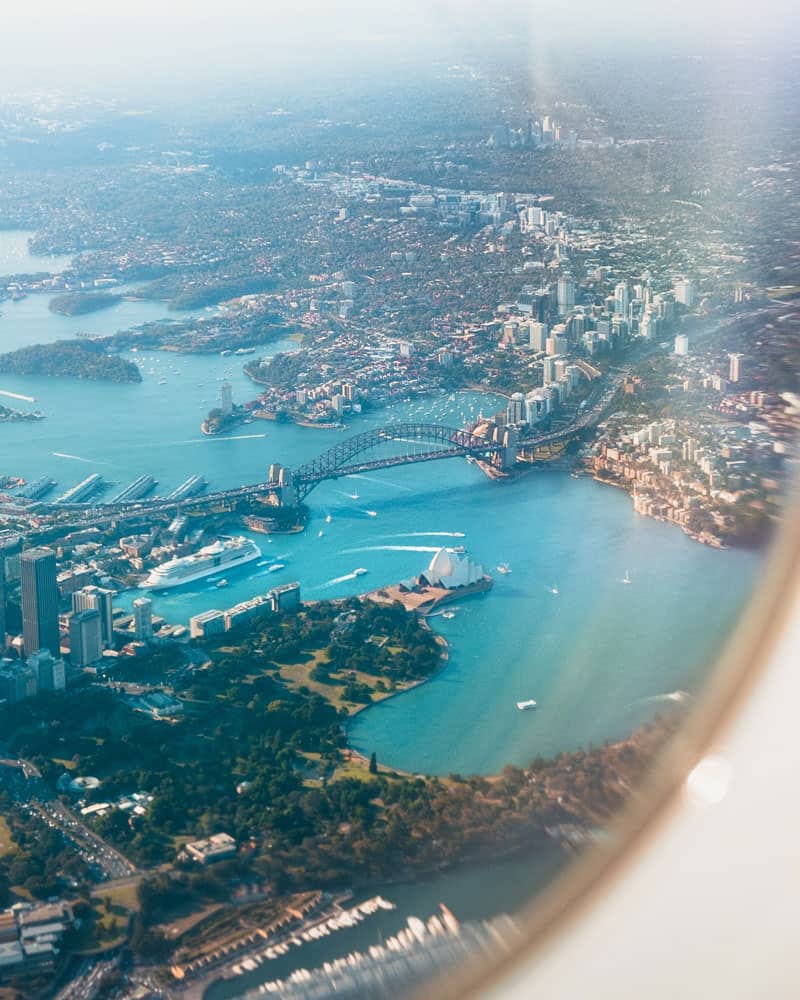
Remember, backpackers flock to the East Coast of Australia, where they can hang in Sydney or surf on their time off and live the high life.
Big City Jobs in Australia
If you wish to do the big-city route, that’s totally fine. Just be prepared for every other backpacker trying to figure out how to work in Australia to be on your heels, walking into shops and restaurants with a CV in hand as well.
I wanted some city life, so I chose Melbourne since it felt like a happy medium of getting to live in a city but NOT being on the East Coast where everyone else lived.
And I totally got what I wanted; a couple of great jobs, fantastic pay, an awesome apartment in one of the best areas to live. I was living the good life!
With that said, competition in Melbourne was still pretty savage, just not as bad as on the East Coast. How do I know? Because I make friends everywhere, and I do my homework. 🙂
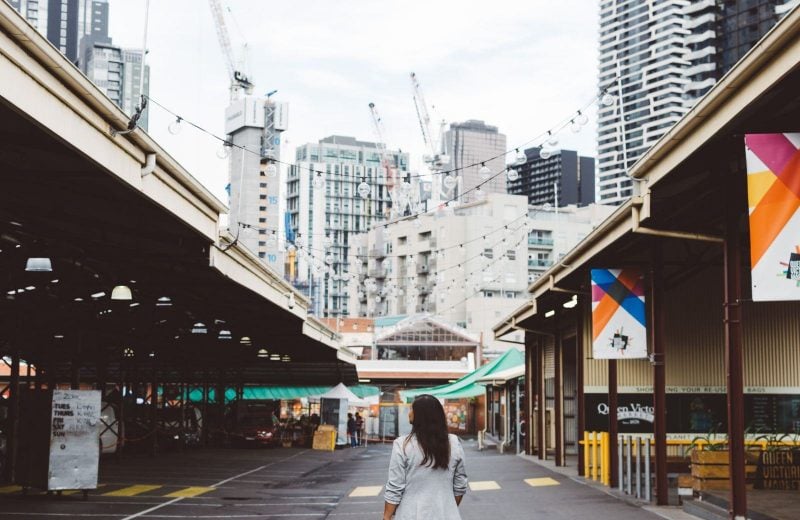
People on the East Coast were having trouble finding jobs, and even when they did, they got paid less than me.
Even if you’re a bit of a hermit, like I can be sometimes, you cannot beat living and working abroad in Australia. Melbourne gave us a sense of the big city life with its swanky bars, grand Victorian buildings towering over us, and life in one of the greatest cities in the world. No joke, it’s literally one of the best.
My conclusion—travel the East Coast, don’t work there (not if you’re actually trying to save money). Of course, there are exceptions, and you can find some wicked jobs on the East Coast. It’s not a set rule, just something to consider.
Something else to note, Garrett and I both had hospitality experience, which definitely helped us get a job too!
RELATED: Working and Living in Melbourne, Australia as an American Expat
Small Town Jobs in Australia
Small town work is also worth exploring. The pay is good, and sometimes even better, since they are desperate for people to hang out there for more than a few days.
The trade-off is a lack of things to do and having a fun city full of life. Darwin was a bit boring but doable. Side note: There are nicer things to do outside of Darwin.
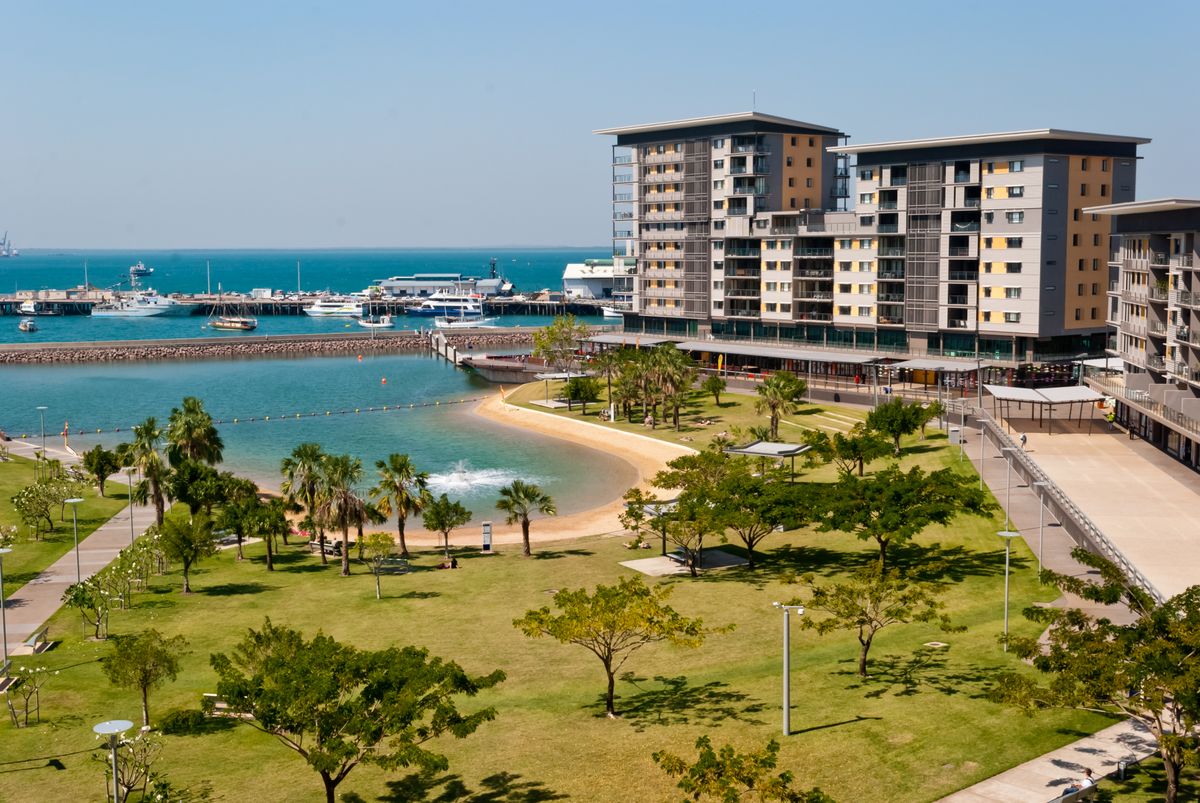
Darwin gave us that rural vibe with quaint little suburbs, local markets, and a good opportunity to stay in and enjoy a beer together while we tried not to melt into our couch (it gets hot AF). Oh, and we were stacking mad cash too!
RELATED: An American Expat: Working and Living in Darwin, Australia
An Example of Where to Look for Work in Australia
(Pay amounts are from 2016)
Garrett is a highly skilled bartender with over ten years of experience. He got hired in Melbourne at an upscale, swanky bar at $22 AUD per hour plus tips (they don’t tip like we do in the US, though). Garrett was making cocktails that required time, skill, and high-end ingredients—he loved it.
Darwin, on the other hand, is a bit bogan (which is Aussie for “redneck”), and fancy cocktails aren’t as big of a thing. He got hired there at $30 AUD per hour, and 80% of his drinks were simply pouring Carlton Draft (the Aussie equivalent of Budweiser).
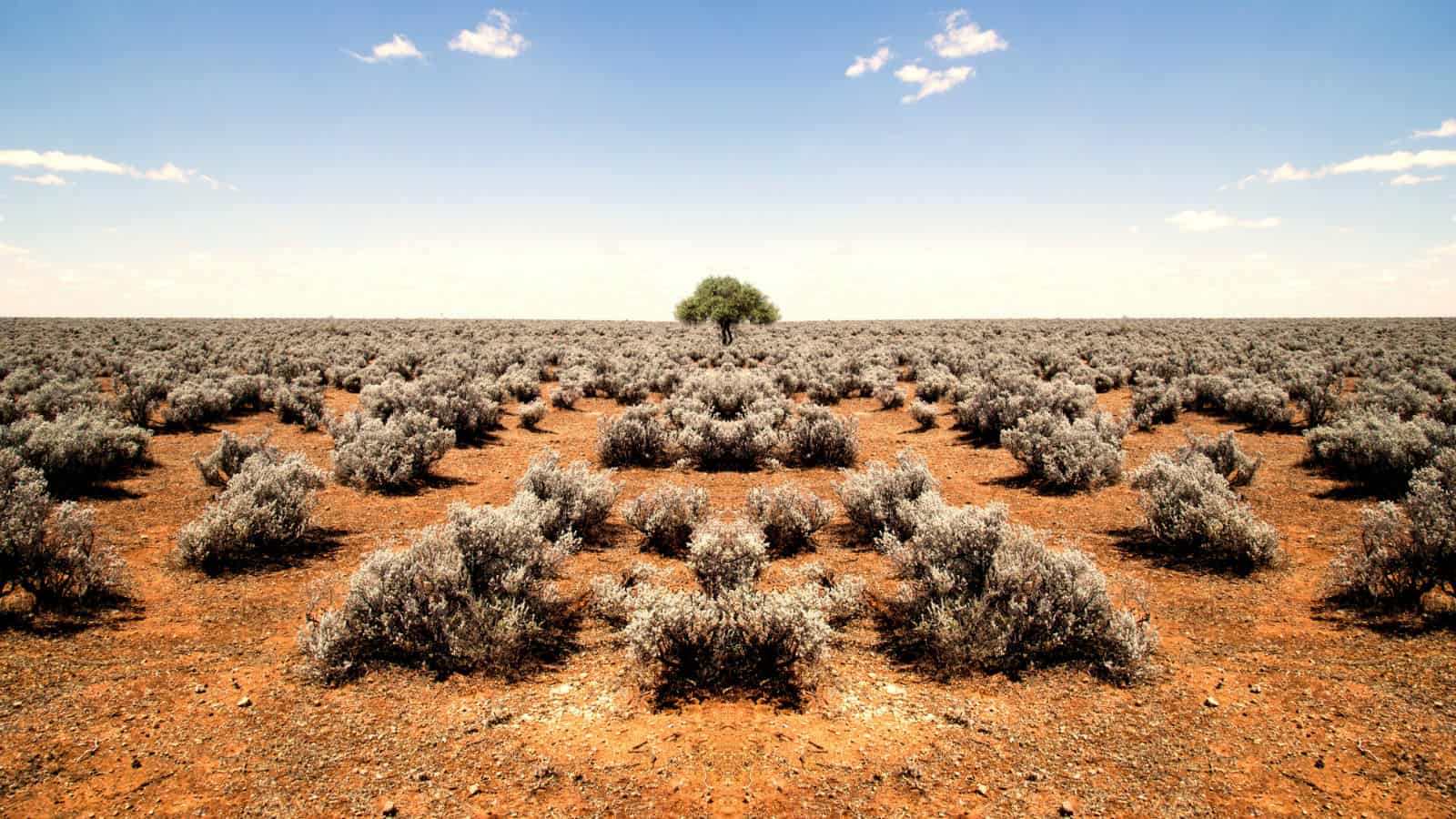
Downgrading to that job was slightly soul-sucking for him since he enjoys making cocktails, but who in their right mind turns down $30 AUD for pouring a draft beer? NOBODY!
Sometimes it pays off to work in the more remote or less popular areas because they are willing to pay to keep you there!
5. Get the Job!
You might feel like you need tons of experience to work abroad in Australia.
Perhaps you need to be a skilled worker or prove yourself with years of experience from back home? Maybe you need a CV the length of your arm or accolades out the bum.
In short: You don’t! You can work abroad in Australia without experience—Seriously! That’s essentially what the working holiday visa allows you to do.
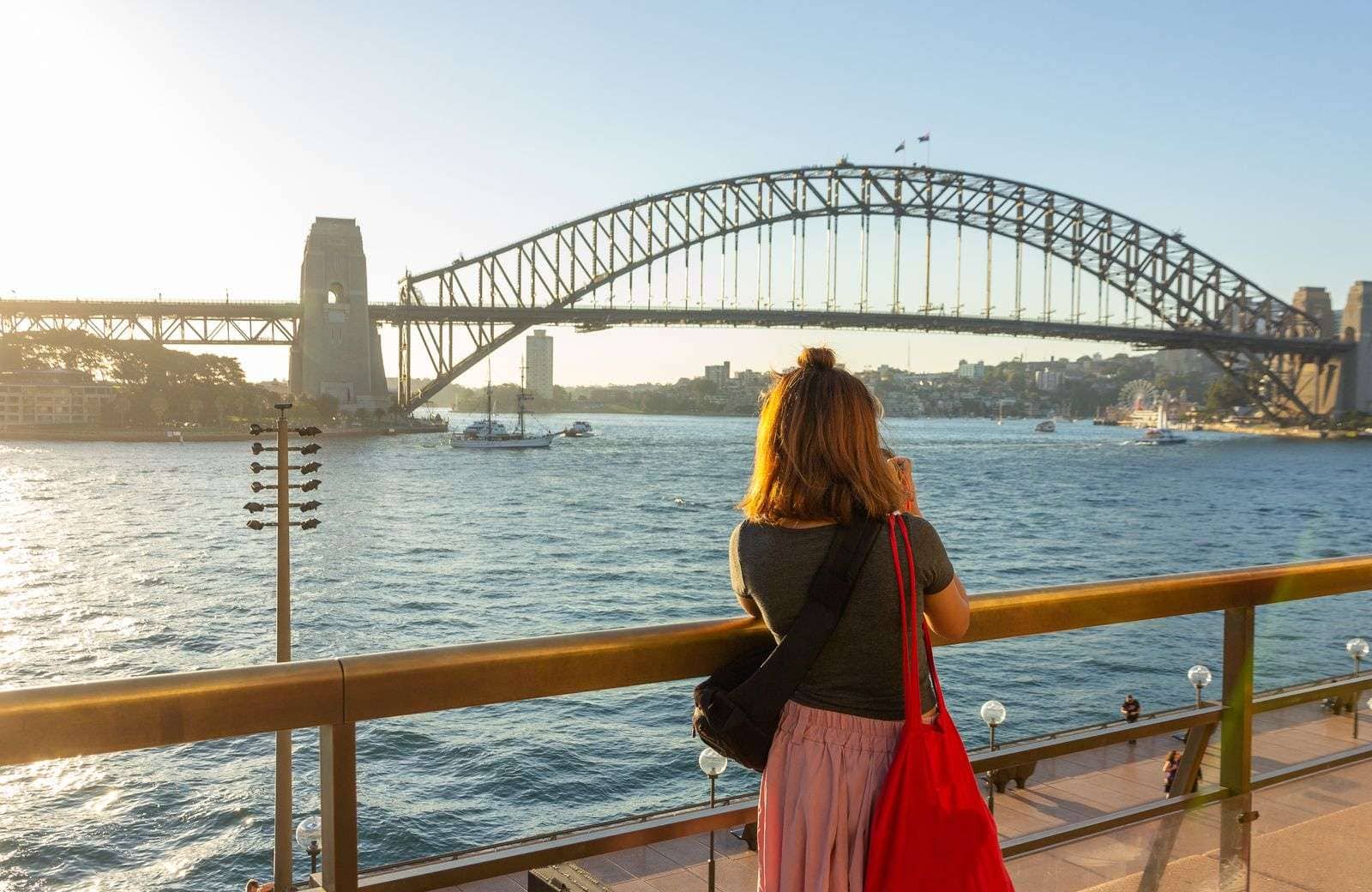
There are people from all walks of life who work in Australia. From pubescent backpackers who’ve barely framed their high school diploma to people with years of unrelated experience doing who knows what and squeezing in their working holiday visa before their 31st birthday (the latter was me).
If you’re coming over to work abroad in Australia, it doesn’t matter what you’ve done or haven’t; it’s all about the attitude and the way you present yourself.
Just a quick note: if you already have a company, some people even go through the process of setting up a branch for their business.
Tips for Landing a Job in Australia
Australia is a super chill place to work and live. If you can only go to one place, you can’t go wrong here. It’s just a matter of being prepared for what’s to come, and now you are!
Have your CV ready, look up your potential employers online, put on some decent clothes, comb your hair, smile, and follow these tips to start working in Australia.

- You can leverage your first few days, or even a couple weeks (like I did) to check out the scene. Go have a beer and scope the bar out. Grab a coffee and chat up the barista. Many jobs are acquired through word of mouth and networking.
- Freshen up your CV before you leave home, and have it ready to print out. Don’t you dare have a CV longer than a page. Keep it simple and relevant. Nobody cares that you volunteered at an animal shelter when you were 15 when you’re applying at a surf shop.
- If you’re applying for a job as a bartender and you’ve never tended bar, that could be a problem if you’re in a big city. But you could easily work at the same spot as a waiter or bar back with no experience. In a small town? You just might get hired! I’ve never bartended, and I got hired as a bartender in less than two days in Darwin. (I went searching for a waitress job but they needed a bartender more! ha!) Always try!
- Get certifications ready (like an RSA if you’re working in hospitality) and have a bank account, tax # and anything else needed to look more like you’re “on it,” because you are, right? (more on this in a sec)
- Be alert. Like anywhere else in the world, it’s possible to get scammed in Australia. Never let your guard down when you’re looking for work abroad in Australia as a foreigner, and trust your instincts if something doesn’t feel right.
- Go at the right time of day. For example, if you’re applying at a bar or restaurant—lunch rush and dinner rush are both insane times to walk into a restaurant. Managers might be annoyed with you for not knowing better. It’s not a good first impression you want to make with a potential employer.
- Put on your happy face! I can’t stress this enough! Flattery will get you everywhere, and having an upbeat personality gives you a much better chance of landing a job in Australia.
- Follow up! I would have never gotten my job in Melbourne if I didn’t follow up THREE TIMES. I finally got the right person on the phone and got hired two days later. Persistence is key if you want to work abroad in Australia and show you’re not like the competition (AKA too lazy to follow up).
- Get off your ass! It may be tempting to treat this like a vacation, but putting off finding a job only guarantees that you’ll eat through your savings super quickly! Don’t make this mistake!
RELATED: How to Completely Change Your Life by Working in Australia
Popular Jobs in Australia for Foreigners
Not sure where to look for work in Australia?
The first thing you should figure out is what kind of job in Australia suits you and if foreigners are allowed to do that job within the country. If you don’t have at least some type of game plan and know what kind of job to look for, you may not find one that fits your interest or skills.
So, what type of jobs are available for foreigners in Australia?
Trust me; there are tons of jobs out there! And lots of jobs in Australia don’t require certifications or a fancy degree (although never bad to have). Just think of all the unskilled immigrant labor in your own country. Australia has tons of immigrant labor, much like the US.
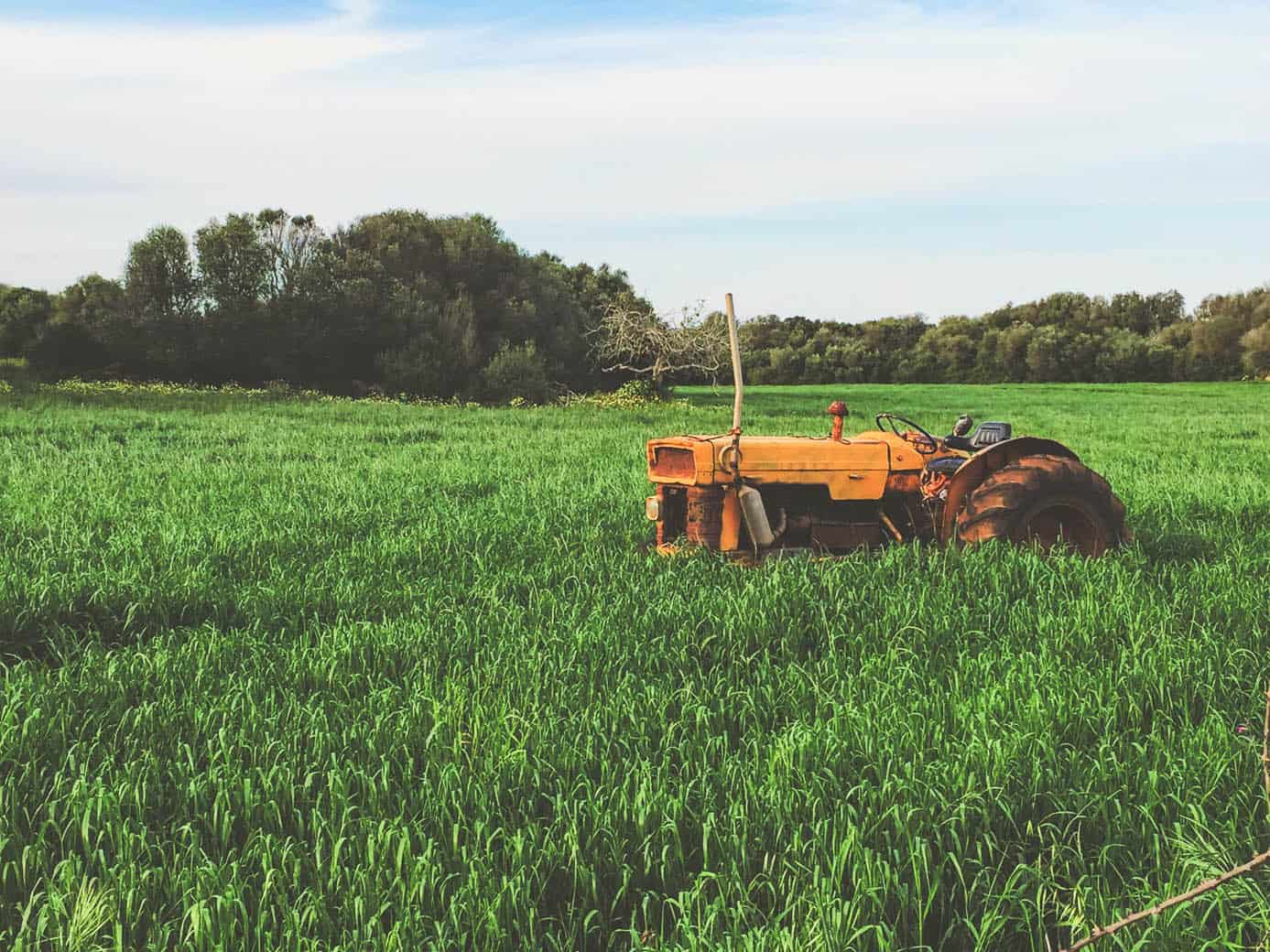
Here are just a few of the popular job opportunities in Australia for foreigners on a working holiday visa or study visa:
- food service
- bartender
- house or office cleaning
- day laborer (construction for example)
- farm work (the pay here often isn’t great and the work is HARD!)
- nanny or au pair
- retail
And there are many more! This only scratches the surface of the industries you could pursue in Australia. It’s even possible to do freelance work in your field.
If you just graduated from college and have a degree, you could use that to your benefit by finding paid internships or freelance work for locals. Flexibility is key to finding a job in Australia. And remember, you DON’T need experience to work in Australia.
Of course, more skilled labor can be done if you have one of the coveted needed jobs.
👉 TOP TIP!
If you’re looking for backpacker jobs around Australia, check out BackpackerJobBoard for the latest opportunities!
READ MORE: How to Work Abroad WITHOUT a Degree: 10 + Job Options!
Where to Look for a Job in Australia
You could wait to start looking for a job until after you get your working holiday visa for Australia and land in the country. However, I’d advise getting a head start on searching for jobs and finding what suits you.
There are several job search websites to help you start looking for jobs before you relocate to Australia.
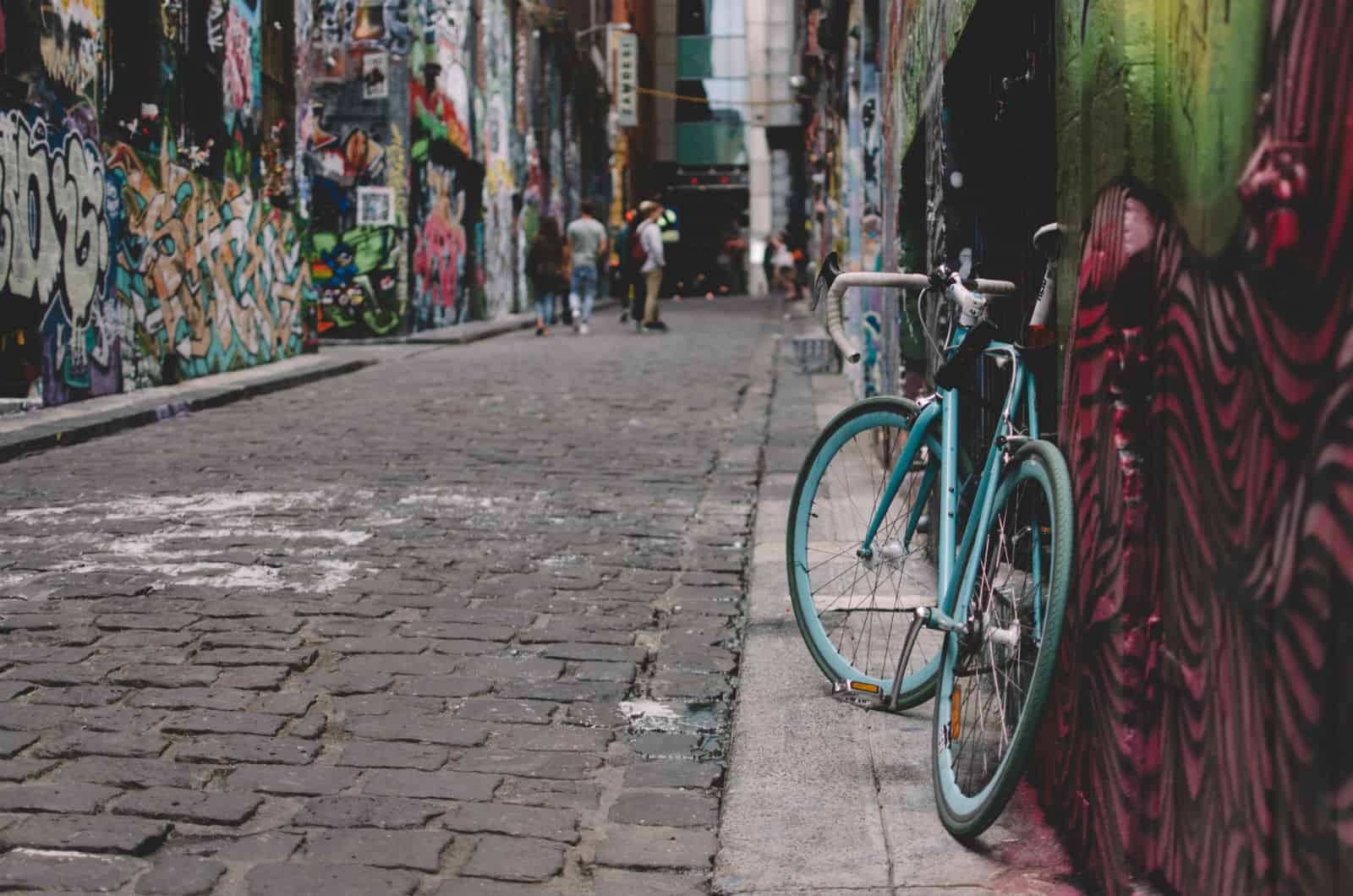
But remember, you likely won’t get a job until you’re actually here. It doesn’t hurt to start taking a peek, though.
Here are a few of the most commonly used job search websites in Australia:
- Gumtree is one of the most talked about sites for those trying to get a job in Australia. It’s like Craigslist, both the good and the bad. You may find jobs here, but some of them will be a scam or sketchy at the least. Always be skeptical when looking for jobs here.
- BackpackerJobBoard
- Seek
- Jobsearch
- Indeed
- AllJobs
- APSJobs
- Careerjet
- Glassdoor
- Facebook groups are a good spot to find advice and work too, but like Gumtree, it can be sketchy too. Don’t meet strangers or do anything that sounds too good to be true. The basic rule here is to use your street smarts.
Australia has an extensive job market, and there are several other job search websites to peruse to see what types of jobs are available.
Your future employer may already be looking for help, and there might be a job listing with your name on it. I can’t guarantee you’ll find something interesting on these sites, but it doesn’t hurt to look.
Alternatively, you can just hand out your CV to places you want to work. This is how I got a job in Melbourne!
RELATED: How To Complete Farm Work in Australia and Extend Your Work Visa.
How to Apply for Jobs in Australia
Applying for new jobs can be a stressful experience in your home country, let alone on the other side of the world. But don’t sweat it, though, applying for jobs in Australia is much easier than you think. Just about anyone can do it.
I’m nobody special and I did it without a hitch! Also, you can bounce ideas off my experience and tips I learned along the way to give you a helping hand.
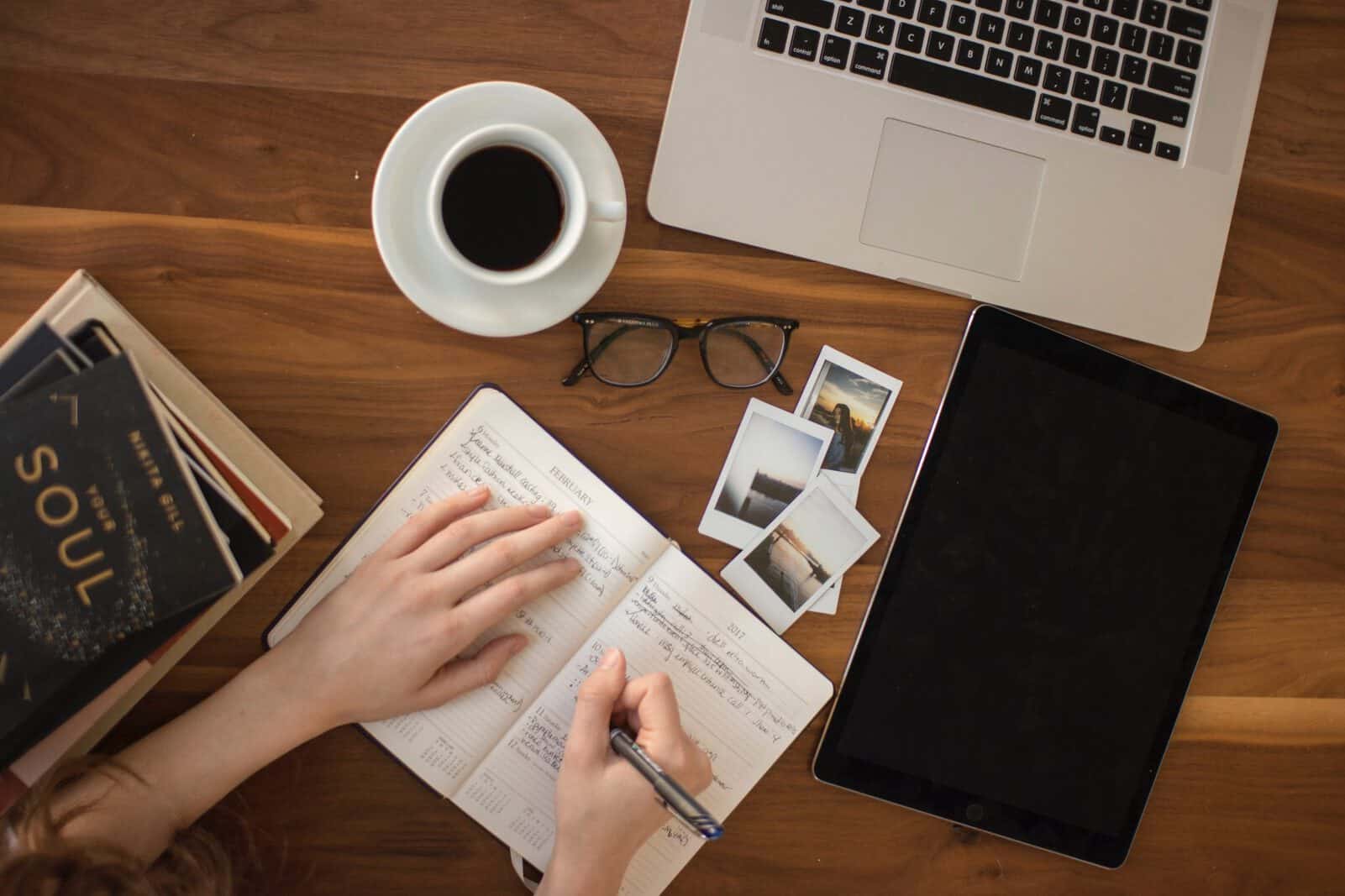
Since we’ve already covered the details of securing your working holiday visa, we can get down to the nitty-gritty of how to get that job in Australia.
Here’s what you need to know before you start applying for those eye-catching jobs that seem like the perfect fit for you:
CV
Sprucing up that old CV should be priority #1! Make sure you have a saved copy of your CV on your laptop that can be adjusted and saved in different versions. Nothing is more annoying than having to retype parts of your CV that will apply to every job.
Research each company/employer you apply for and be prepared to bring relevant CVs to each job interview. The restaurant manager doesn’t care that you’ve been a dog walker. Your education is always nice, but only include work history that’s relevant to the specific job you’re after.
Also, print out a physical copy of your customized CV for each specific job you interview for.
RELATED: Moving to Australia: The Price of Living Down Under (11 Cities)
Certifications
It’s always a good idea to be aware of how the employment system works in a new country and work it to your advantage to maximize opportunities for both work and profit.
One of the best ways to do this is by learning what types of certificates you may need for the job you want. If you’re asked at an interview about the required certificate, you’ll look well prepared by answering that you already have it.
The employer will know you’re serious about getting a job in Australia, and it’ll likely improve your chances of getting hired.
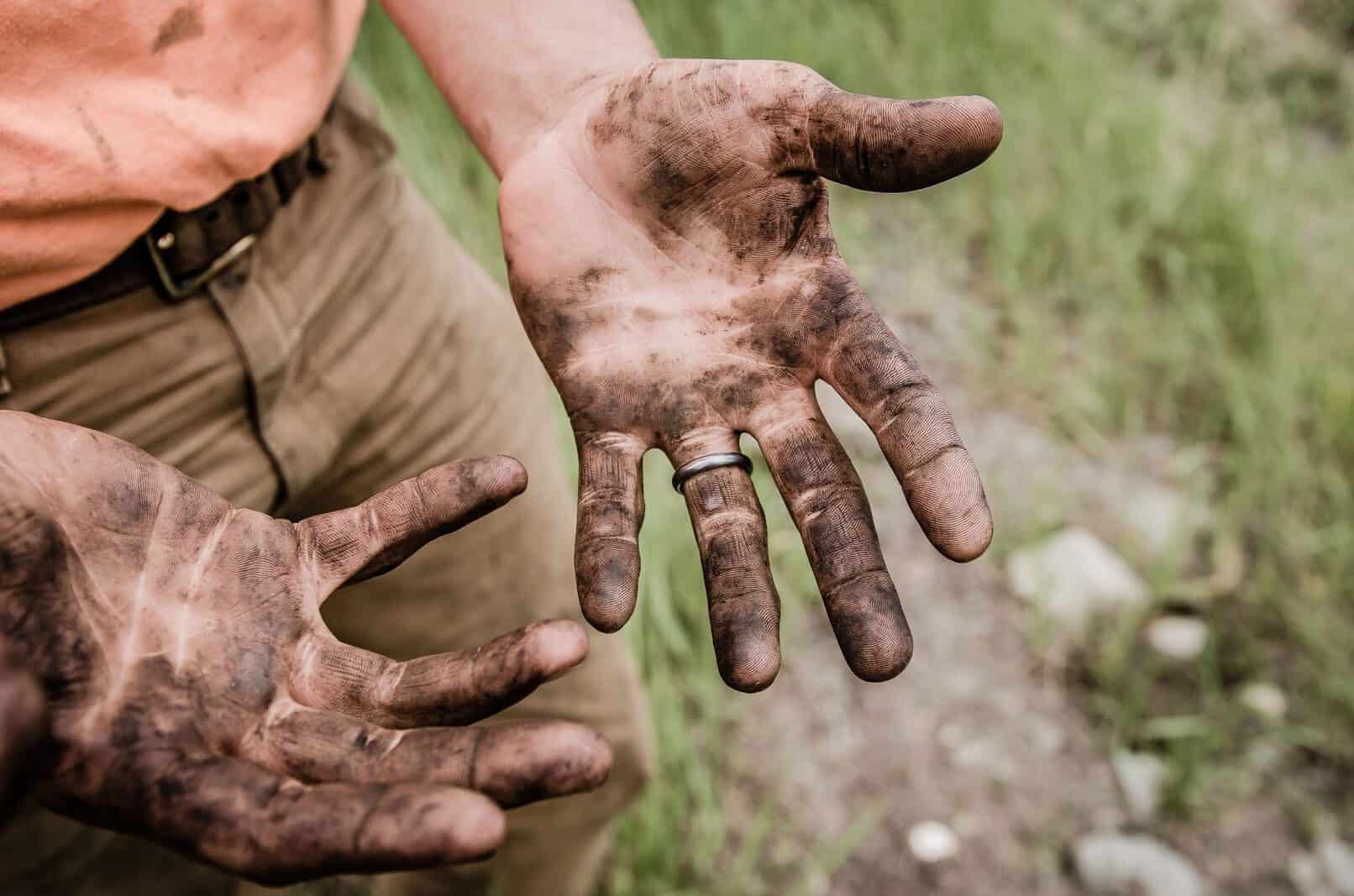
For example, you’ll want to get an RSA card if you plan on slinging drinks and a white card if you plan on hammering nails. An RCG certificate is needed to work in casinos, and you may need a blue card to work with children, depending on the state you decide to work.
You may be able to acquire some certificates online, but others will require you to take an in-person course. Also, not all states will require the same certificates. Compare prices from different companies offering the certificate to find a rate suitable for your budget.
The lesson here is to do your (travel) homework before class begins!
The Right Season to Find Jobs in Australia
Job opportunities for foreigners are everywhere during the holiday season. Show up a couple of months before the December holidays with a smile and an updated CV, and you’re almost guaranteed to find a cool gig. If you’re lucky, it may even turn into a long-term job.
For Americans looking for a job in Australia, remember that the seasons are reversed compared to back home. This hot period of job hiring in Australia just before Christmas coincides with the spring and not fall.

Job postings are usually their highest in September, and this is when you’ll see more employers looking for help. If you want to work in retail or hospitality, then this is the time to jump on the ball.
The turn of the calendar is another popular time to start job hunting in Australia, but you’ll likely face more competition for the jobs you want. Job searches are at their highest from January-March, while Australians are returning from their Christmas holidays.
It can potentially be risky if you try moving to the country during the Australian summer since some employers won’t post job listings until the holidays are over.
However, you’ll find some companies who like hiring fresh faces at the start of the calendar year, so be on top of your research.
Research, Research, Research!
Finally, know what kind of job market you’ll be getting into and learn some knowledge about the industry.
Although there is always a general high demand for foreign labor in Australia, specific industries will not always need many workers. The last thing you want to do is pursue an industry that already has too many workers, and they fill any vacancies with locals.

Don’t let that discourage you though; you’ll always find industries within the job market that need some help. The key is finding the right one where you have plenty of job openings and the competition is not too crazy.
If you by chance know someone who already found a job in Australia, it never hurts to ask how the job market is doing at the moment.
Also, be able to talk about the product, the food, the industry, or whatever else you need to learn. For instance, brush up on your surfing lingo before you go walking into a surf shop for a cashier job.
Knowing the industry will go a long way in beating out the competition, especially in more competitive jobs.
The Perks of Living and Working Abroad in Australia
Once you’ve had a successful interview and landed your first job in Australia, you’ll be on the fast track to all the fabulous perks of working in this laid-back country.
Working in Australia was an incredible experience, and I couldn’t recommend it enough. Here are the biggest reasons why you should totally work abroad in Australia if you’re eligible.
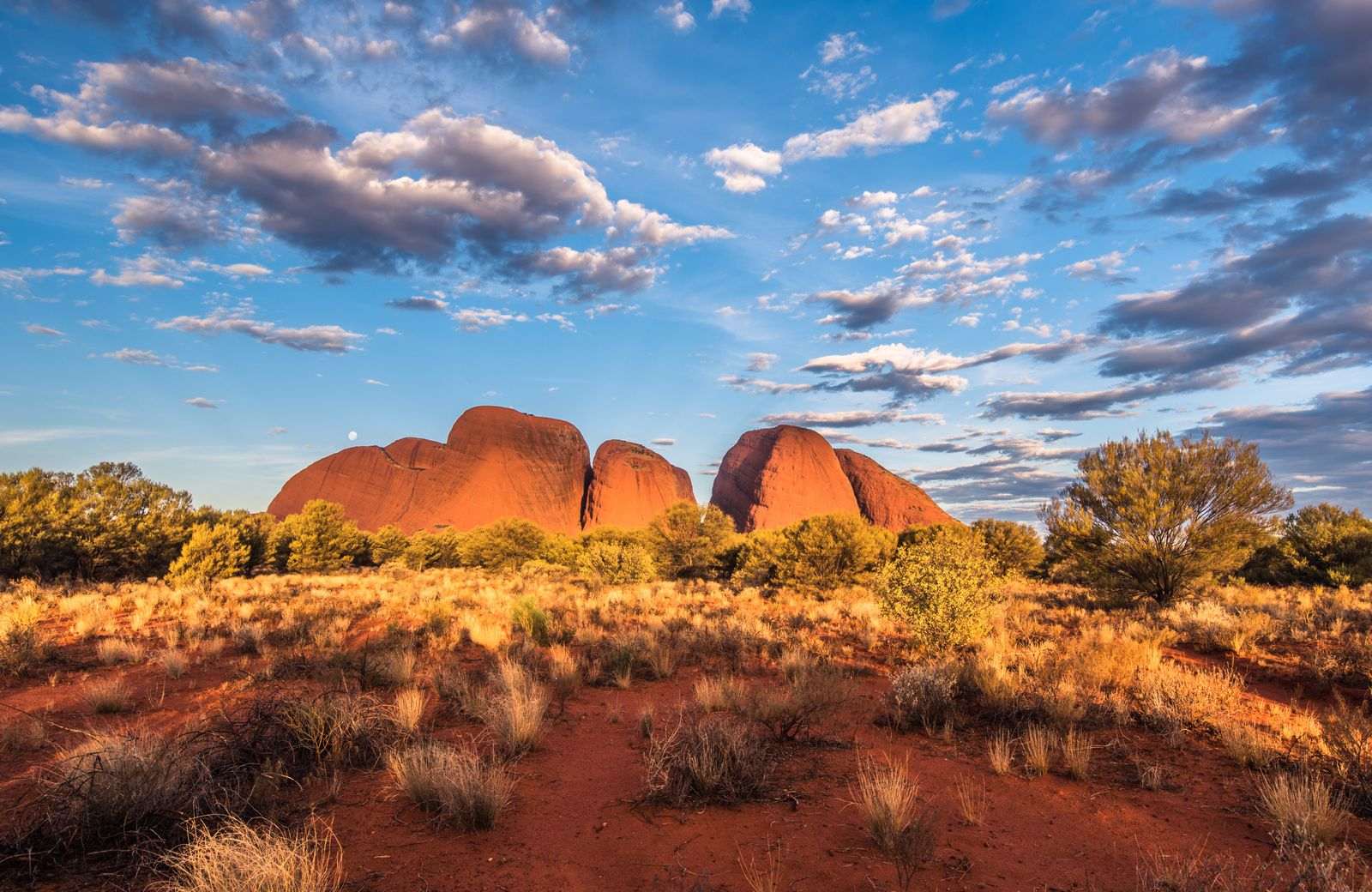
- Good pay with most jobs.
- If you work in the hospitality industry, you get fed fo’ free! Woop Woop!
- Work-life balance is on point in Australia.
- Possible earnings of vacation days even while you’re not a permanent worker.
- You get paid superannuation, which is essentially retirement money that you can claim once you leave. This is EXTRA money your employer sets aside for you with each paycheck.
- IF you want to be a permanent worker in Australia, your company may be able to sponsor you! Speak to them if you’re serious (it ain’t cheap, so BE SERIOUS if you ask).
- You can work in Australia without experience—it’s not difficult.
- You can save a boatload of cash if you put your head down and work at it. Oh yeah, did I forget to mention? I saved over $20,000 USD in 10 months while working in Australia! Not a typo, that’s a cool $20k, my friend!
The point is, it’s not difficult. Australia looks forward to backpacker immigrant labor since we make up part of their workforce. It’s easy and enjoyable when you’re working for a company that appreciates you and understands you have a life outside of work. And working for one that pays well is the icing on the cake.
Tips on Moving to Australia
More tips because I love you, and I want you to be able to live and work in Australia!
1. Save Up BEFORE You Move to Australia
You’re gonna need some money. So before you go, pick up some odd jobs if you need to. Stash as much extra moola as you can prior to packing your bag. The last thing you want is to end up broke and homeless in a foreign country before you’ve even had a chance to get a job.
The main point: Don’t arrive broke.
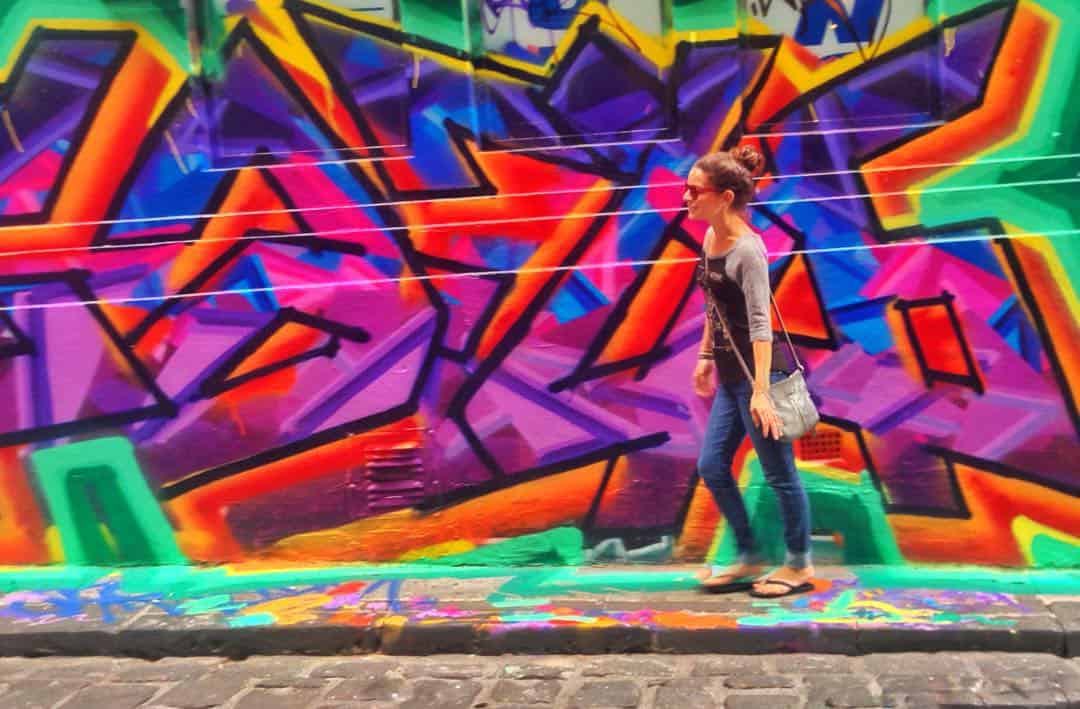
2. Get an Australian Phone Number
It may seem obvious, but you’d be surprised how many people don’t have a local number to give employers when they’re looking for work in Australia. And it doesn’t require a lot of effort to have this done either.
Make sure your cell phone is unlocked before you leave the US (check with your provider), then when you land in Australia, head to the airport’s phone shop to grab a SIM or memory card.

Optus is what I used, and it was cheap and efficient in the city, but it barely worked once I ventured into the countryside. Telstra is better for those going to work on farms or other rural jobs. Choose your provider carefully, and don’t just go with the cheapest option (and just a fair warning, pretty much all the providers suck either way!).
This is what it was like a few years ago, nowadays, you might want to look into choosing other international SIMs!
3. Bank Locally
Open up a bank account in your city to make all your finances easier to manage while working in Australia.
I went with ANZ, which is a pretty big Australian bank. I had access to ATMs, a debit card, and everything else needed for banking like you would get back in your home country.
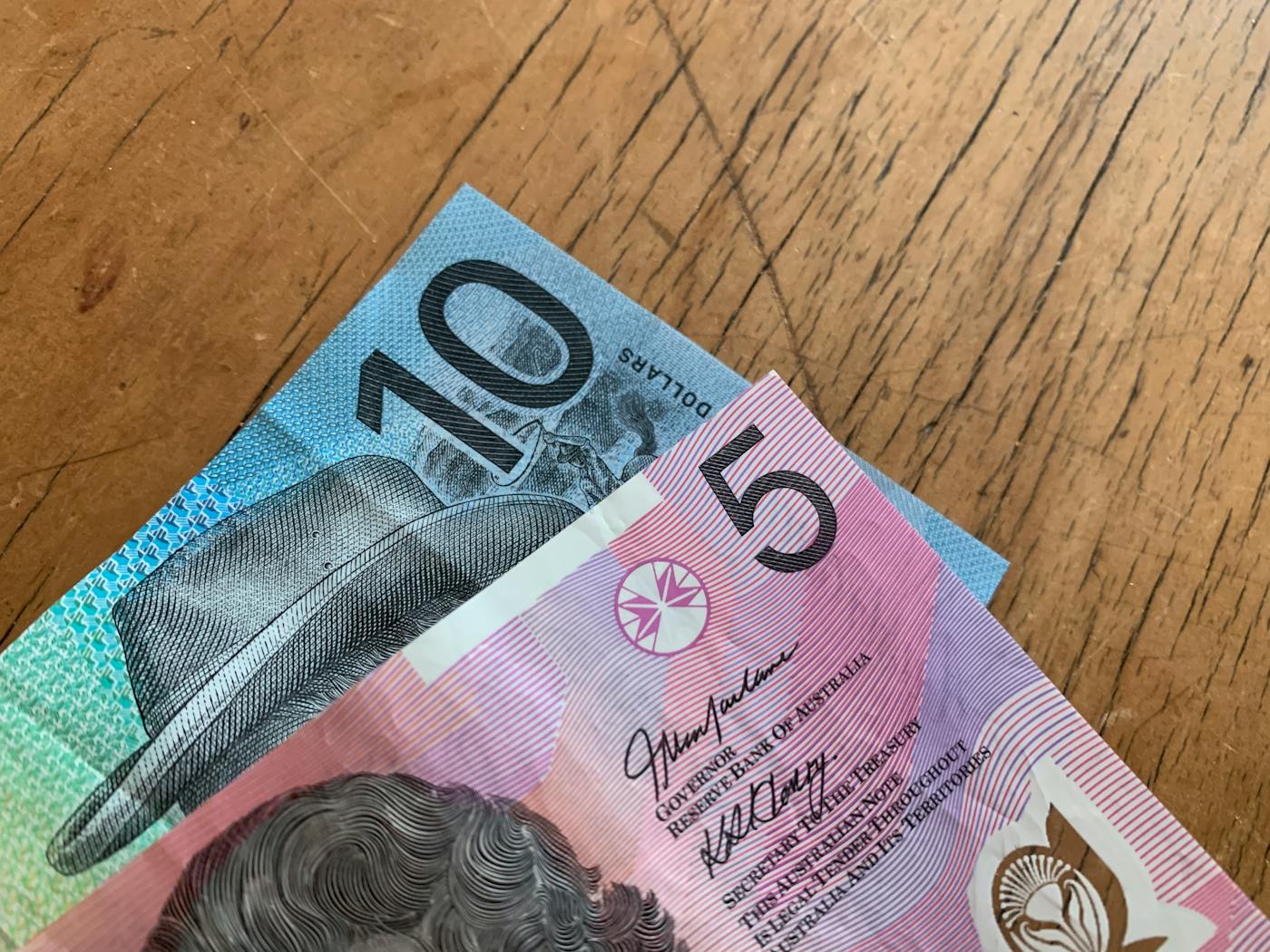
You’ll just need your ID and tax number to get everything set up. You want to be able to get direct deposit, make withdrawals, and operate in Australian dollars.
Speaking of taxes, your tax number is called a TFN, and it’s simple to set up. Just fill out the form and wait.
4. What Is Your Goal?
You want to think about why you’re going in the first place. If you’re like me and want to go to live and work in Australia to save, you can get a couple jobs, like I did, and save a boatload of cash very easily.
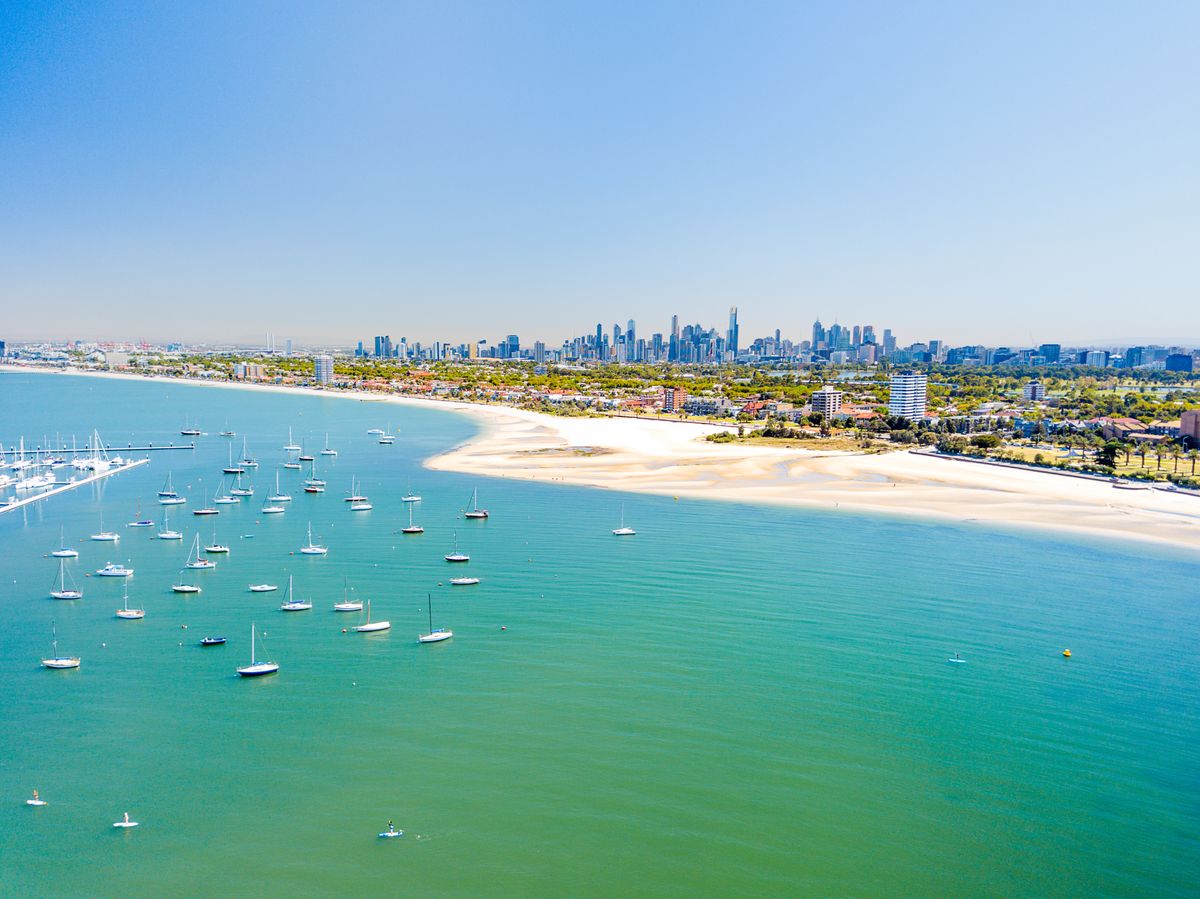
On the other hand, if you want to travel around the continent a bunch, take in the sights and sounds, fight kangaroos, and grab spiders in every region, odd jobs will be more up your alley, and you also may want to save up a bit more before you go.
The main point: Are you saving, traveling, or both? Figure it out because there’s no time or extra money for thinking too hard about it there.
RELATED: The Ultimate Guide to the Australian Working Holiday Visa
5. Where Do You Want to Start?
On a map, compared to the US, Australia looks like a small island. Newsflash: it’s not. It is a massive continent. It takes ten hours to drive from Sydney to Melbourne and they are basically on the same corner of the southeast coast.
Pick a spot to start and map out a rough plan from there. Remember that our seasons and theirs are flipped upside down. So our summer is their winter and vice versa. Also, know that the regions can be dramatically different climate-wise.
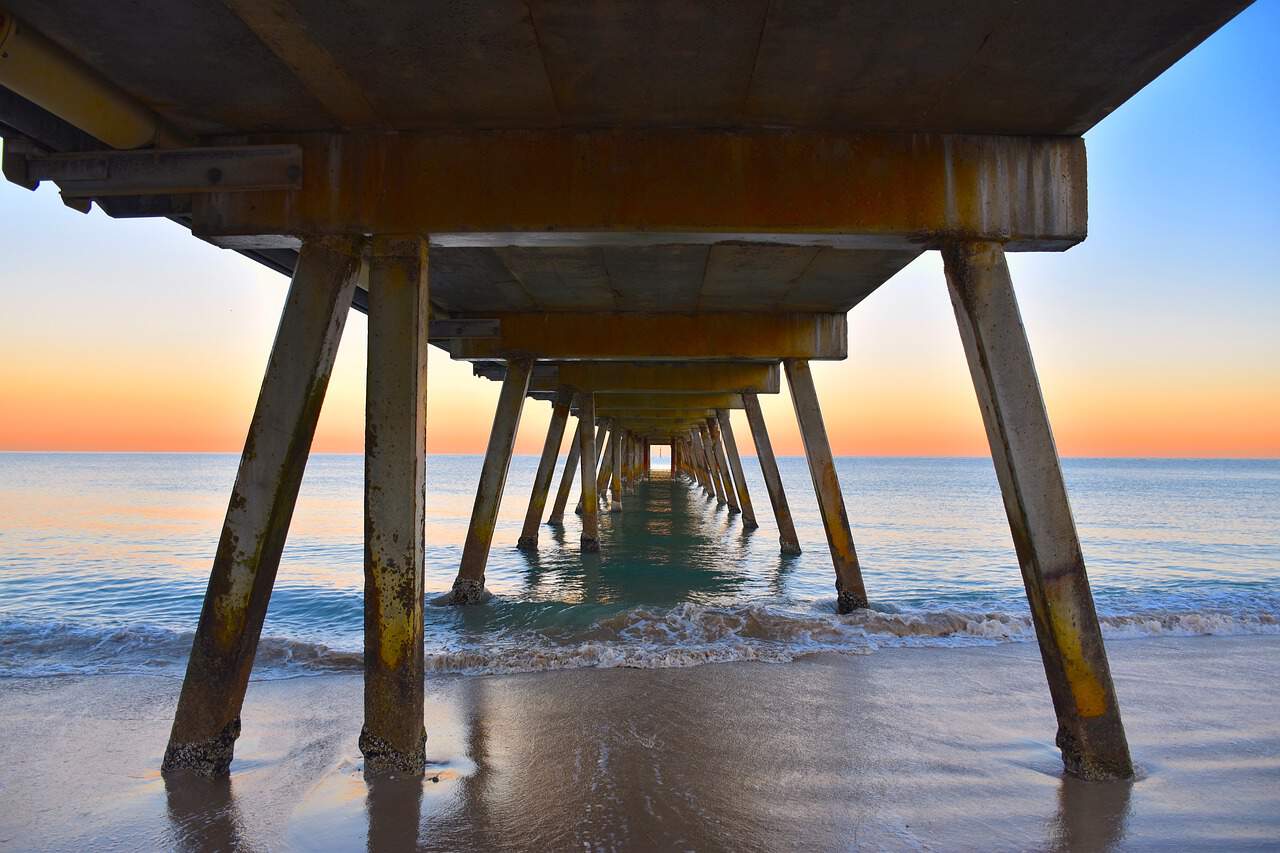
The main point: It’s expensive moving around, so choose a place and stay there for 6 months. 6 months is also the time limit you can spend at one employe. (Although things changed after 2020, and they did away with this rule. Double-check if this is back in effect.)
6. What Kind of Plane Ticket to Buy?
One way! You may never want to go back home. Things in the US aren’t that hot right now, and you may find yourself taking a liking to the nomadic lifestyle. Hey, you may end up doing what I did and heading back to backpack Southeast Asia to chill for a bit (for very cheap too!)

You can save up a ton slinging drinks in Sydney and then blow all your money (okay, not all of it; you will eventually want a flight home or somewhere else) on a fabulous bungalow living in Thailand on the beach.
The main point: You certainly do not need to buy a round-trip ticket a year in advance. Trust the travel pro over here!
7. What to Bring With You?
Everything. Remember what I said about the cost of living? You don’t want to have to buy a sweatshirt in an emergency because you landed in the middle of winter in Australia with tank tops only. If you’ve got it, pack it.
You’ll be there for a whole year! Bring whatever you can. Sure, you can shop thrift stores and sales if you have to, but, really, you don’t want to have to.

But let’s not be extreme. Don’t pack three suitcases worth. I’m just saying, packing what you need to live in and work in so you don’t have to buy much there. Don’t spend before you make it, right?
The main point: Don’t buy shit there if you can help it, and if you do, thrift it! (They have amazing thrift stores)
8. Find a Place to Live
If you’ve ever had to look for a place to stay in the US, it’s pretty much the same in the land down under. Check the online sites, Flatmates, Gumtree (watch out for this one, it’s a bit like Craigslist back home—it can work but it’s sketch).
You can even check Facebook. Find a housing group in your area and watch for roommate posts or post one of your own.
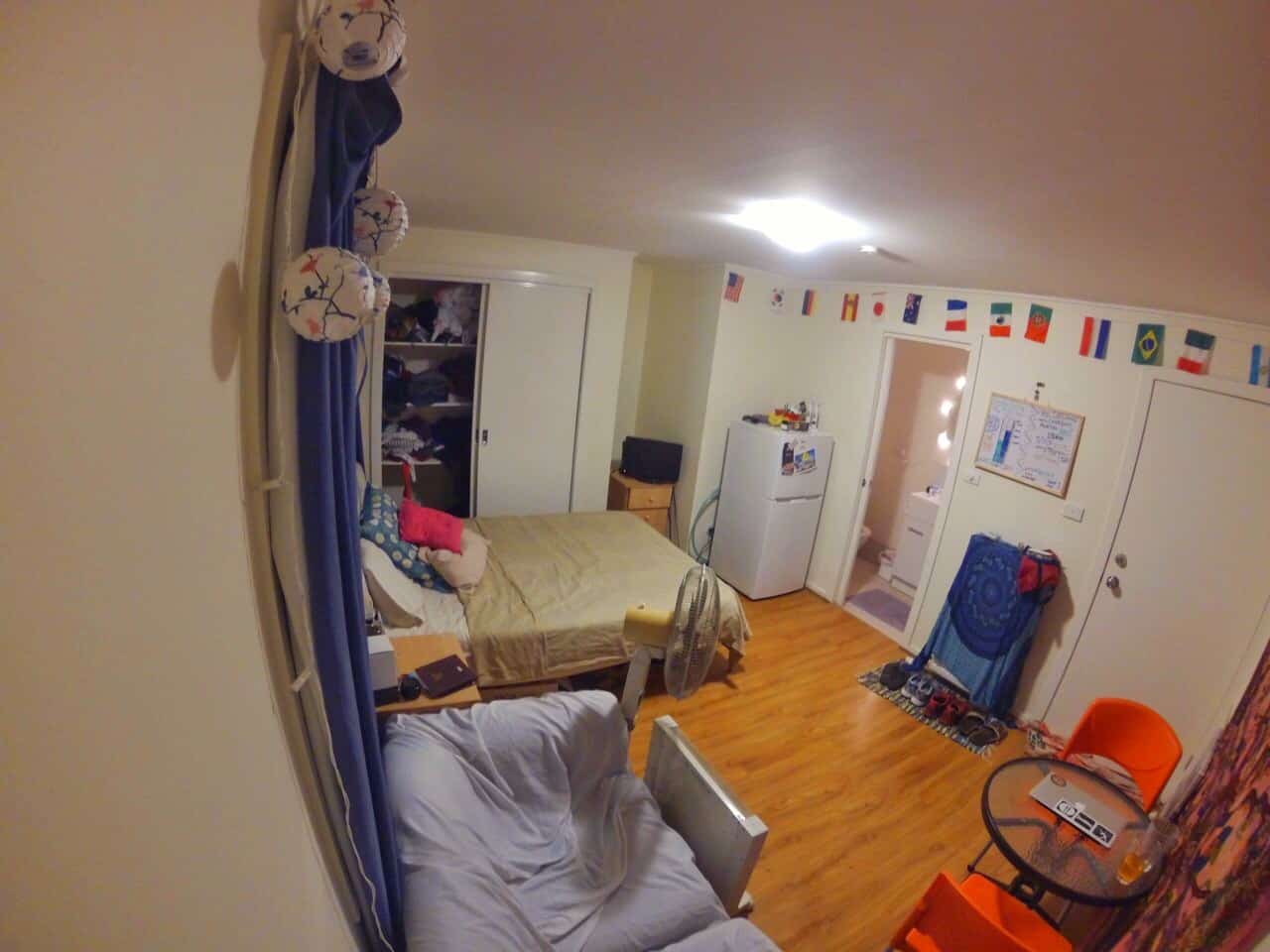
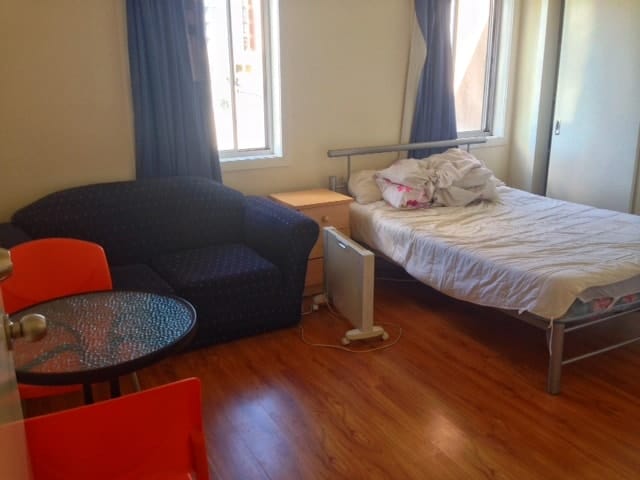
The best thing to do for starters, is head out into the neighborhood you’d like to stay in. Wander aimlessly, down the streets, into cafes. Make friends! (yes, that again.) Pick up advice and tips from the locals. You never know who may have the hottest scoop on a room to rent or a studio to score.
Here’s more info on living costs and finding accommodation in Australia.
9. Make Friends
I’m not the most social butterfly, but I try to make friends everywhere I go. I join groups, I make friends at work, and I make friends on the street. It is part of what I love about traveling, and it’s pretty easy to do as there are plenty of backpackers in Australia.
I even made friends with a spider once. Okay twice. Those huntsmans are pretty cute and furry-looking! (JK, they are terrifying)

But you do not have to be an eager beaver socialite to make friends in Australia.
You could, of course, make friends at work. If that’s all too social and in your face, then join Facebook groups for the area. That’s actually how we found our roomie in Darwin, who ended up being super cool!
The main point: Friends = insider tips for Australia and people to split things with, which = money saved. It’s easy math, mate.
How To Save Money in Australia
Now that you’ve got your job in Australia, it’s time for the fun stuff! You’re probably wondering how you can possibly save money in this expensive ass country. Maybe you’ll get a second job to earn extra income or find yourself a cheap little flat with a cool roommate you met at work?
Don’t worry; I’ve got you covered on this one!
Bargain Shop
You can become an amazing bargain shopper even if you’ve never done it before. We spent a lot of time shopping at Woolworths and markets while making sure we bought seasonal items.
Whatever is in season will always be cheaper and fresher, so it’s a win-win. Take advantage of the sales and you’ll save money in Australia like a champ.
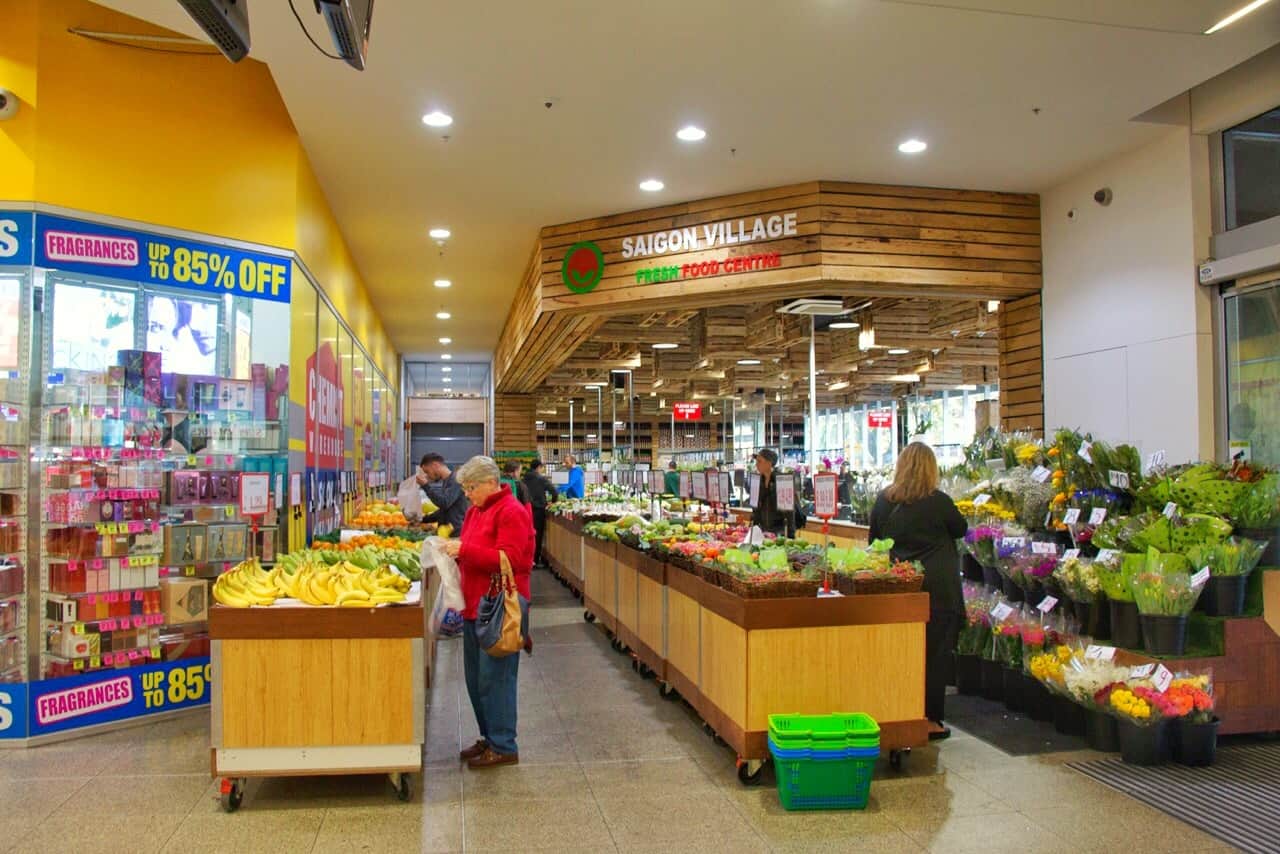
There’s always something on sale and you can usually find them by the yellow tags. If it wasn’t on sale or already cheap, we didn’t buy it. When an item that wouldn’t go bad was on sale, we made sure to stock up!
Eat (and Drink!) In
This one is a double whammy! After hunting for sales around the soup aisle, now you get to stay in and eat the food you almost literally hunted and gathered.
Trust me, restaurants and bars are way too expensive. Why do you think they pay so well? If you’re going out to eat and drink all the time, you’ll blow through your paycheck, and you won’t save a penny.
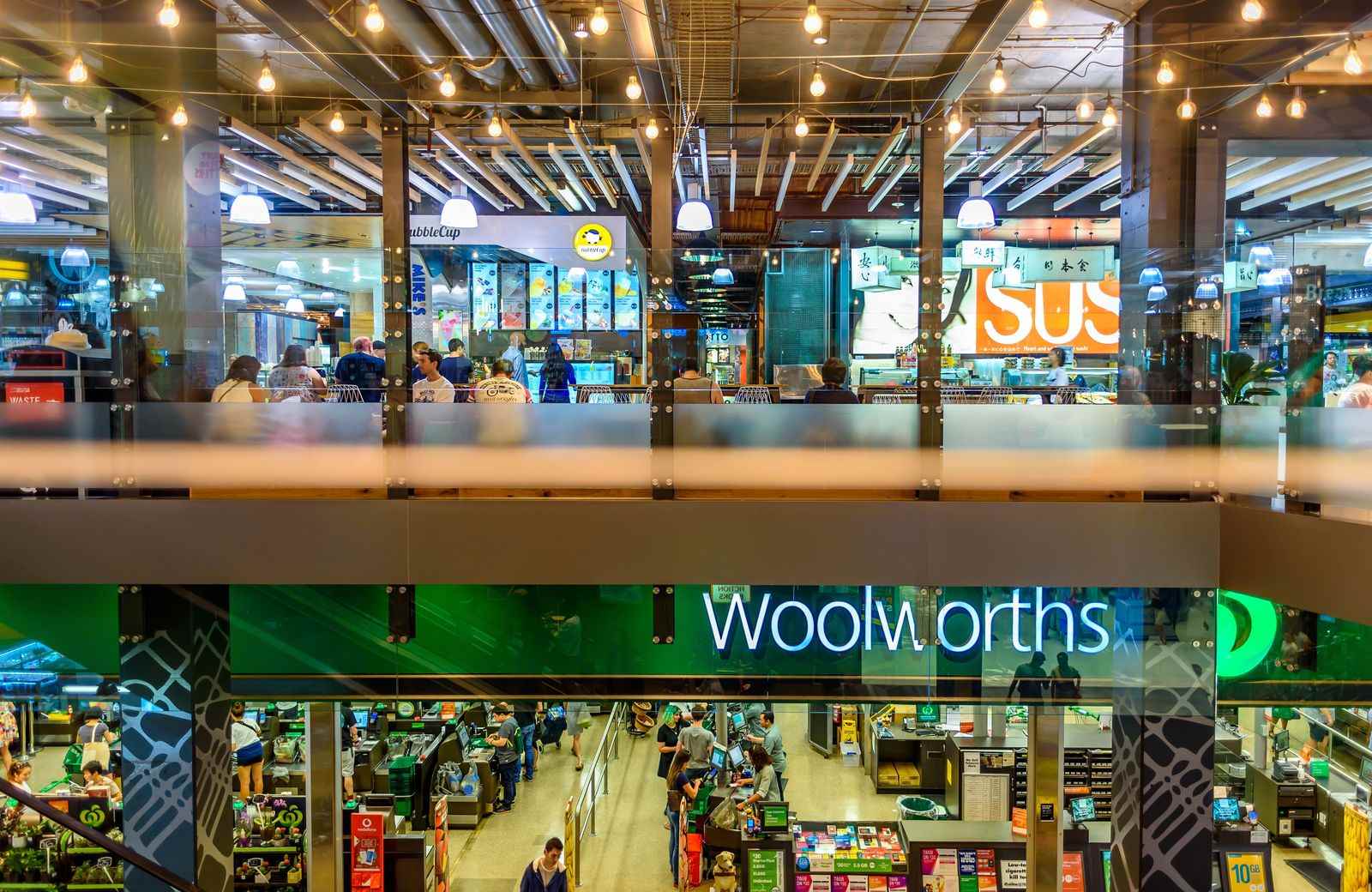
That’s why you’d rather get a job there and not be their customer. Unless your employer is letting you eat for free while you work (they often do this in hospitality), do not go out to eat. The food prices can be outrageous, and the drink prices are a nightmare.
Use Your Legs
If you can get a place close to the walkable downtown areas, definitely take advantage of the opportunity. The less you have to pay for transportation and can just hoof it, the more you’ll wallet will thank you.
We opted to pay a bit more for rent so we could be closer to work and cool areas, and we walked a bunch/were close enough to the free public transport area.
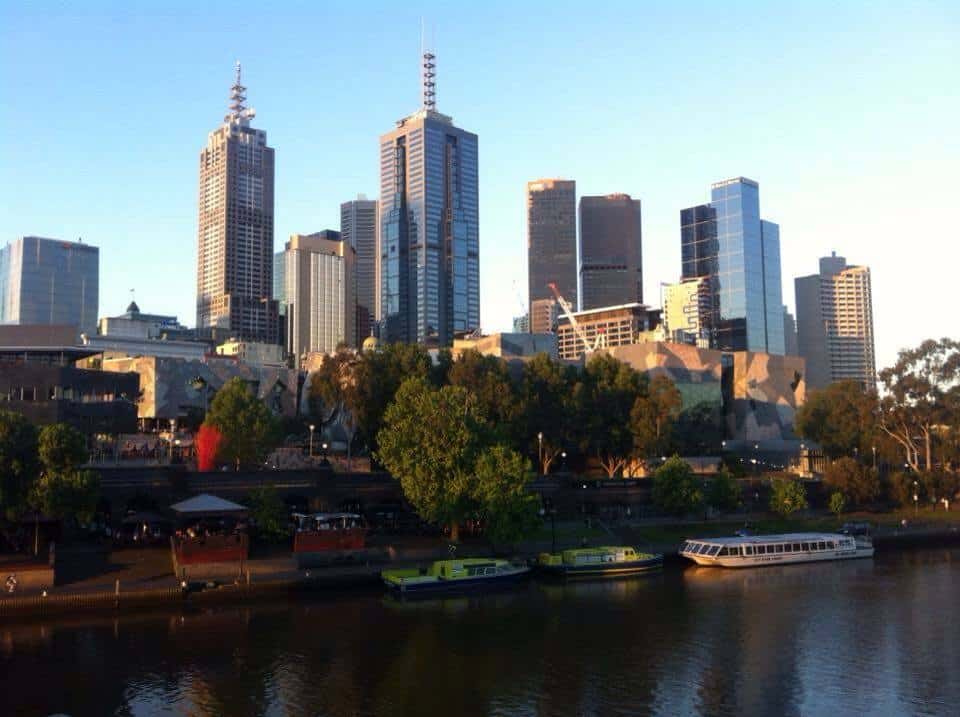
Unlike the US, Australia’s cities, even Melbourne, are easily walkable or have excellent public transport (seriously, the US is TERRIBLE with this). We lived in Carlton/Fitzroy and easily used public transport and walked!
Later, when we headed to Darwin, we ended up buying scooters because it was not as walkable and we needed our own transport. Fortunately, we were able to sell the scooters for nearly the same price we bought them. So, we learned to save money in Australia in a variety of ways!
Our Budget
In an expensive country like Australia, it never hurts to be creative when figuring out a way to stick to your budget.
It might seem silly, but we had a whiteboard on our wall with our monthly budget. It included what we planned to spend, and we stuck to it like glue.
It’s totally reasonable to live off of $1000 AUD a month, but that’s it. You won’t be living a fancy life by any means, but you’ll get by.
We were fine with this because it would only be for one year, and it meant a full ass bank account at the end of that year.
RELATED: An American Working in Australia and Living for Under $750 USD ($1000AUD) / Month
Be Like a Mule
If your goal is like mine and to save a ton of money—work like a mule. Get a second job, start freelancing on the side, and get creative with your hustle to earn as much income as possible.
You only get one or two years to work in Australia, and you can travel anytime. Put your nose to the grindstone and make that money, honey!
Let’s talk about Garrett and me and how hard we worked, especially Garrett!
In Melbourne, I had two jobs, but the second job was literally two short shifts a week. I averaged 40-50 hours per week. In Darwin, I worked even more. I still had two jobs and worked around 50-60 hours per week.
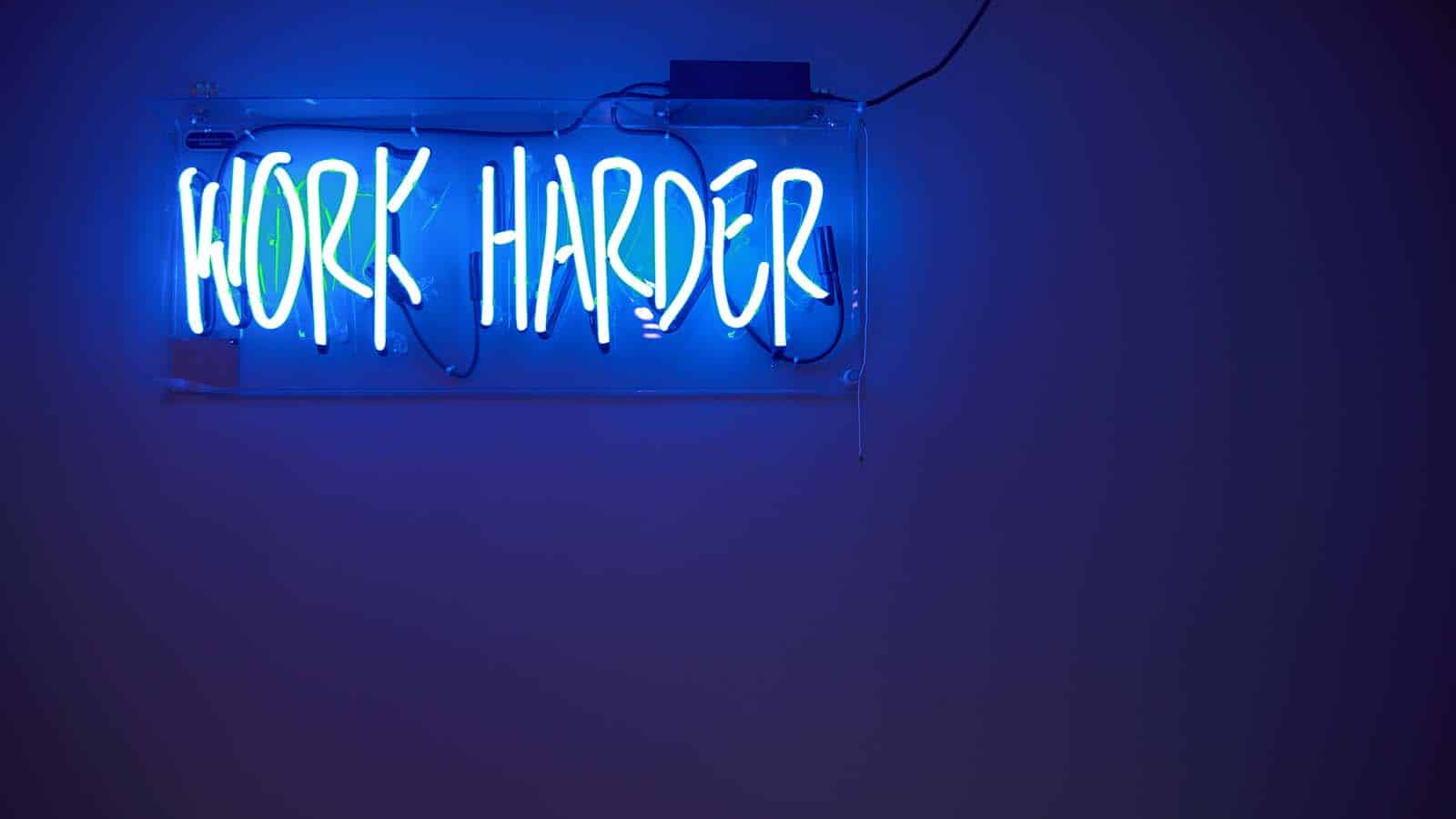
Side note: I also work online! As you can see, I have this thing called a blog which requires work and makes me money too.
Garrett? He worked himself to the bone in Melbourne, sometimes averaging around 70 hours of work per week! He went a bit easier on himself when it was time to move to Darwin, but he found a job that paid 30 AUD per hour to pour beers. Lucky kid!
The main point? You’ll need to work really f*cking hard if you want to save money in Australia. But trust me, it’ll be worth it when you’re staring at the fat bank account at the end of the year.
Spoiler alert: Garrett saved $30k USD and I saved $20k USD in under a year.
RELATED: How I Saved Over $20k USD in 10 Months Living in Australia
Treat Yo’ Self?
Just kidding, DON’T treat yo’ self! The less splurging you do, the more money you’ll save. Work a bunch, give yourself no time to spend, and save save save! I saved over $20,000 USD, and my boyfriend saved over $30,000 USD. Then, with that kind of savings, you can, in fact, treat yo’ self.
In fact, our plan all along was to spend the entire year saving money so we could use it for travel and more!
In short, we spent our money living in Thailand for a few months, I got LASEK in South Korea, and it paid for some time for us in Portugal to put our heads down and get serious about our online businesses.
After that, we STILL have money left over, and it paid for an entire five months of van life around New Zealand.
Final Thoughts on How to Work Abroad in Australia
Now you’re prepared! And being prepared is half the battle. Actually, it’s around ninety percent of the battle.
You have everything you need to know about how to get a job in Australia and how to save money in Australia. The next thing for you to do now is put these tips into practice.
I hope after all of that, you’ve figured out how to work abroad in Australia—it’s possible! Best of luck!
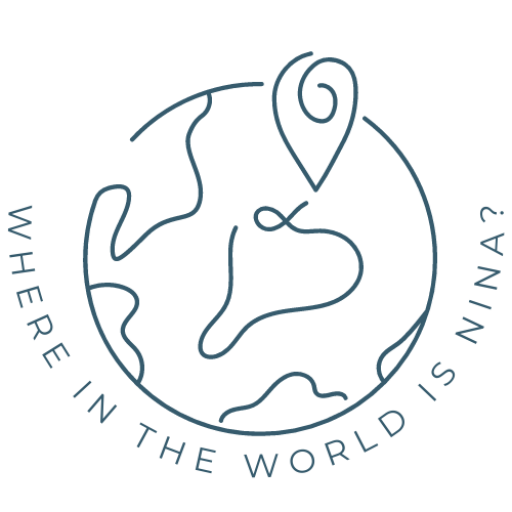
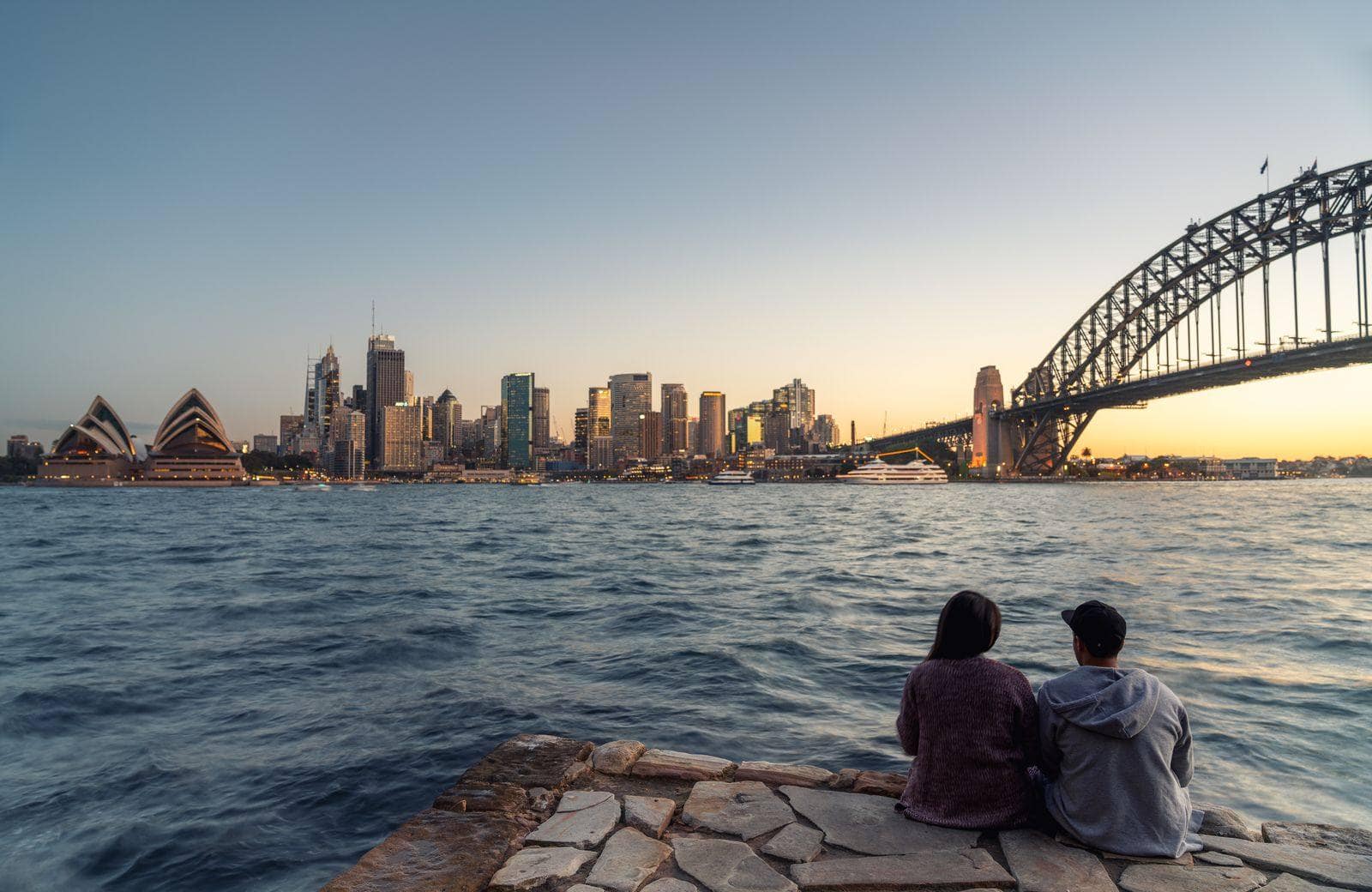
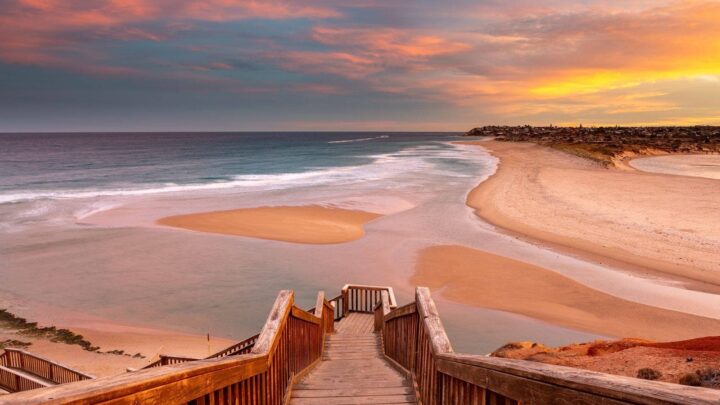
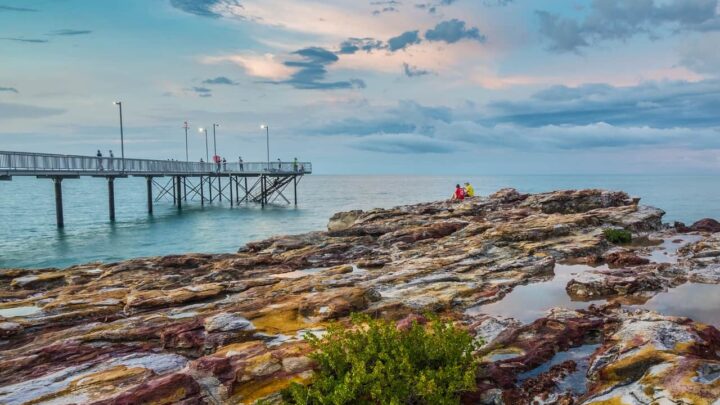


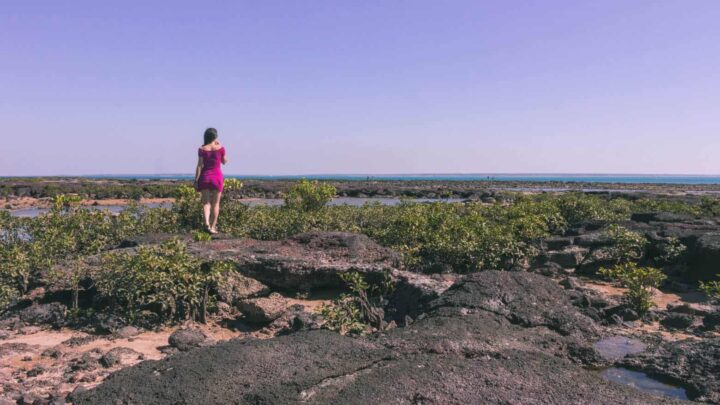
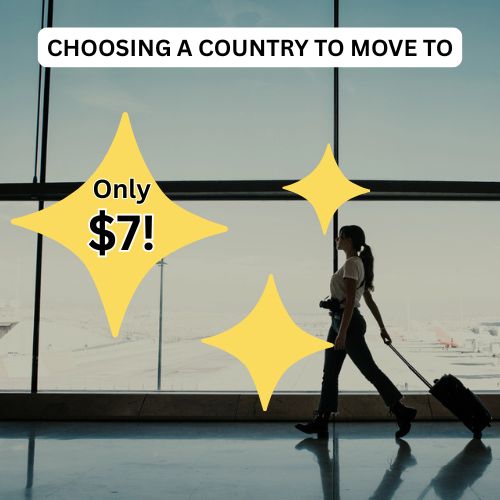
Hello
I want a job in austriliya. Plz help me to find
Thank you
Hey, thanks for the info, I wanted to know if there will be any professional jobs for me like administration and such, since I hold an Honors Degree in Public Management and also currently perusing my Masters. Please enlighten me on this. Thank you